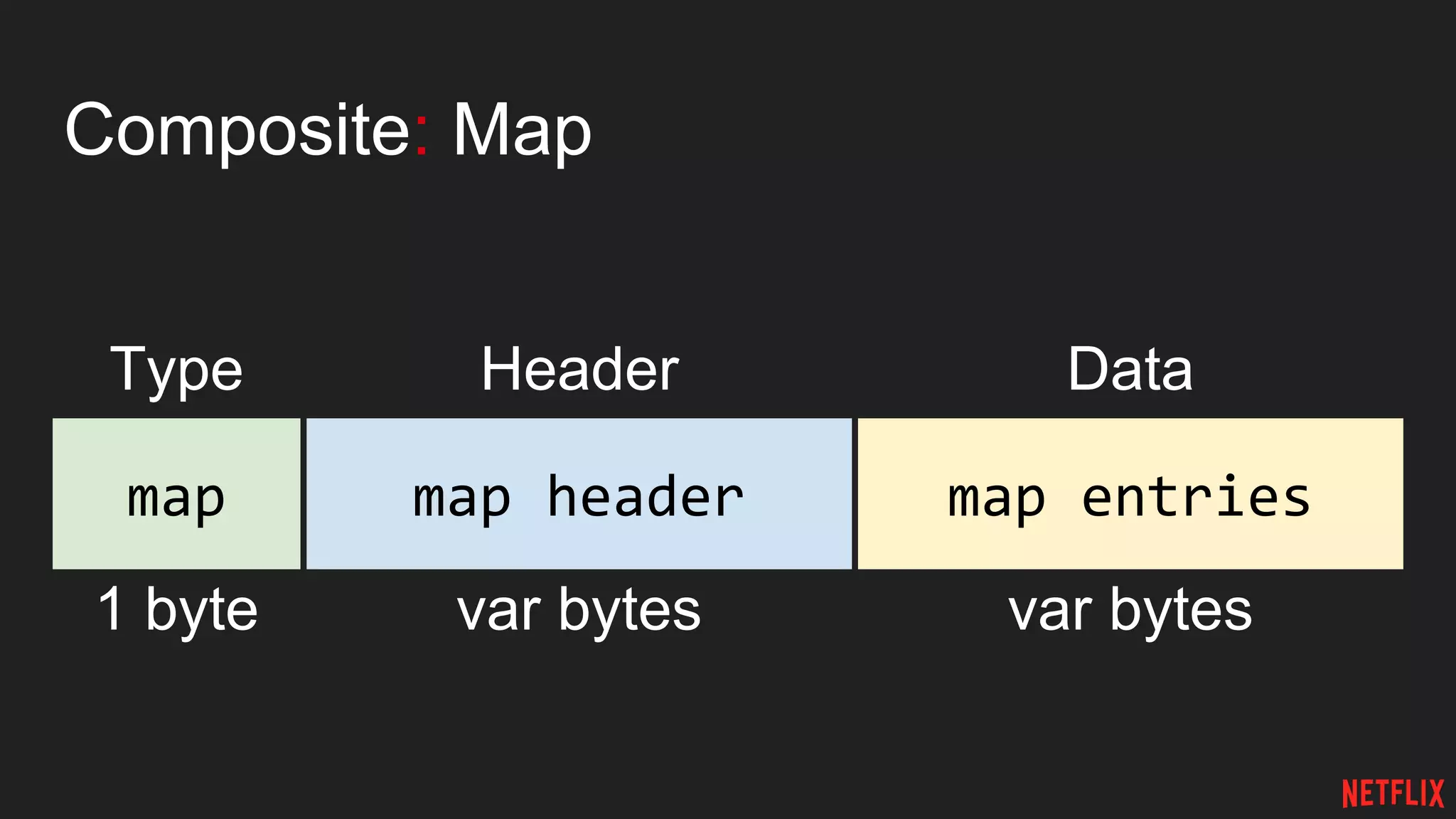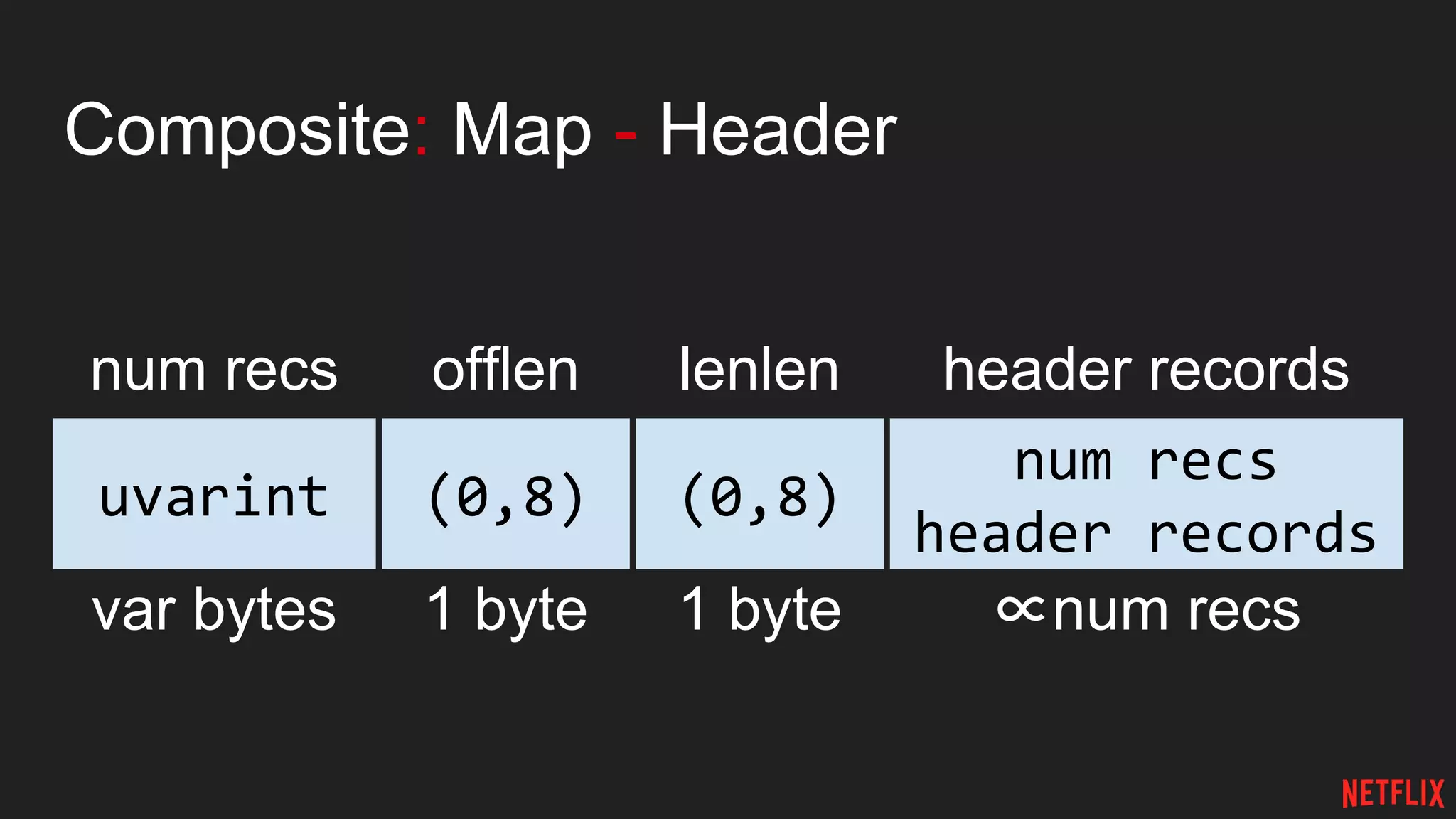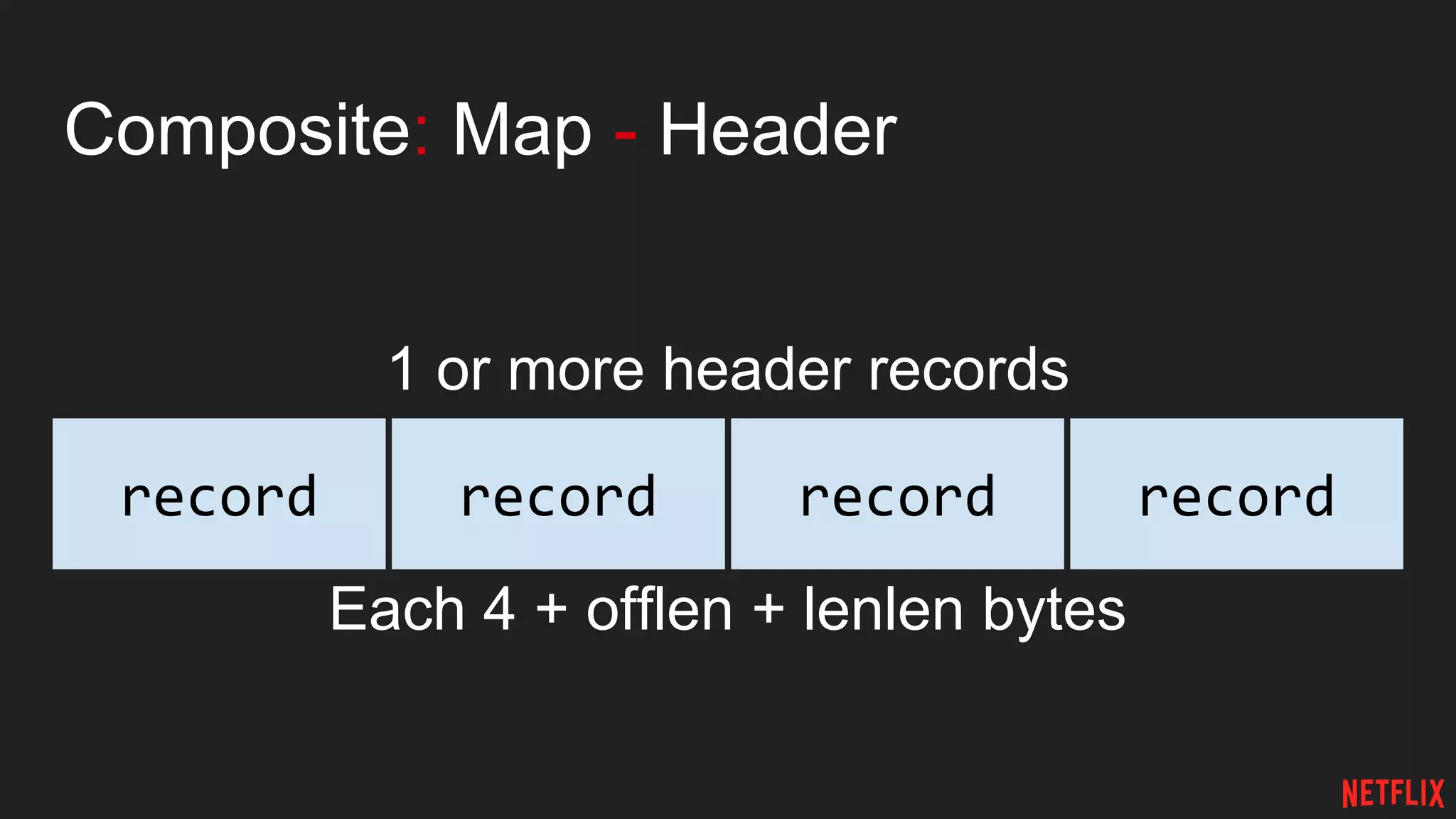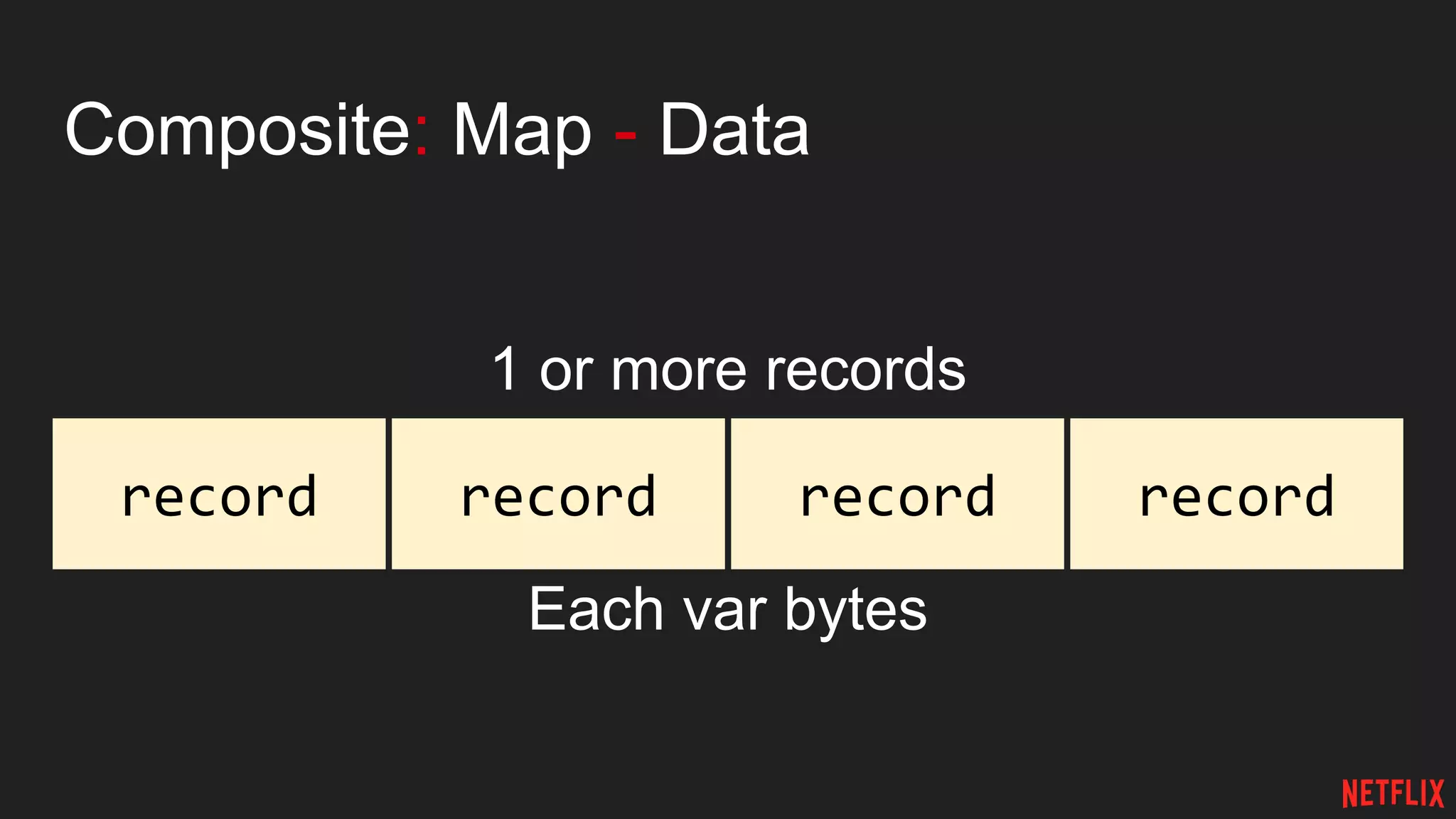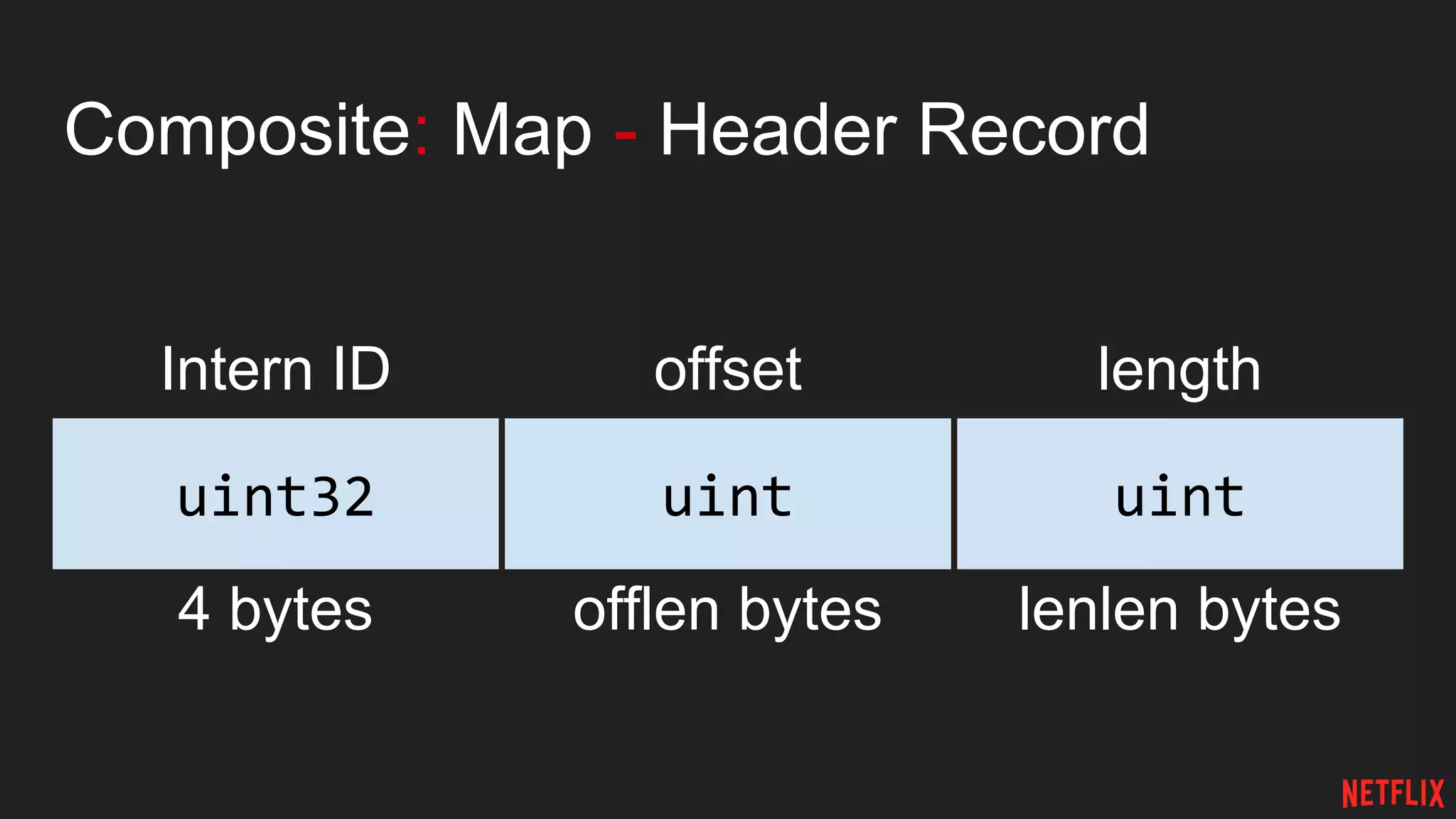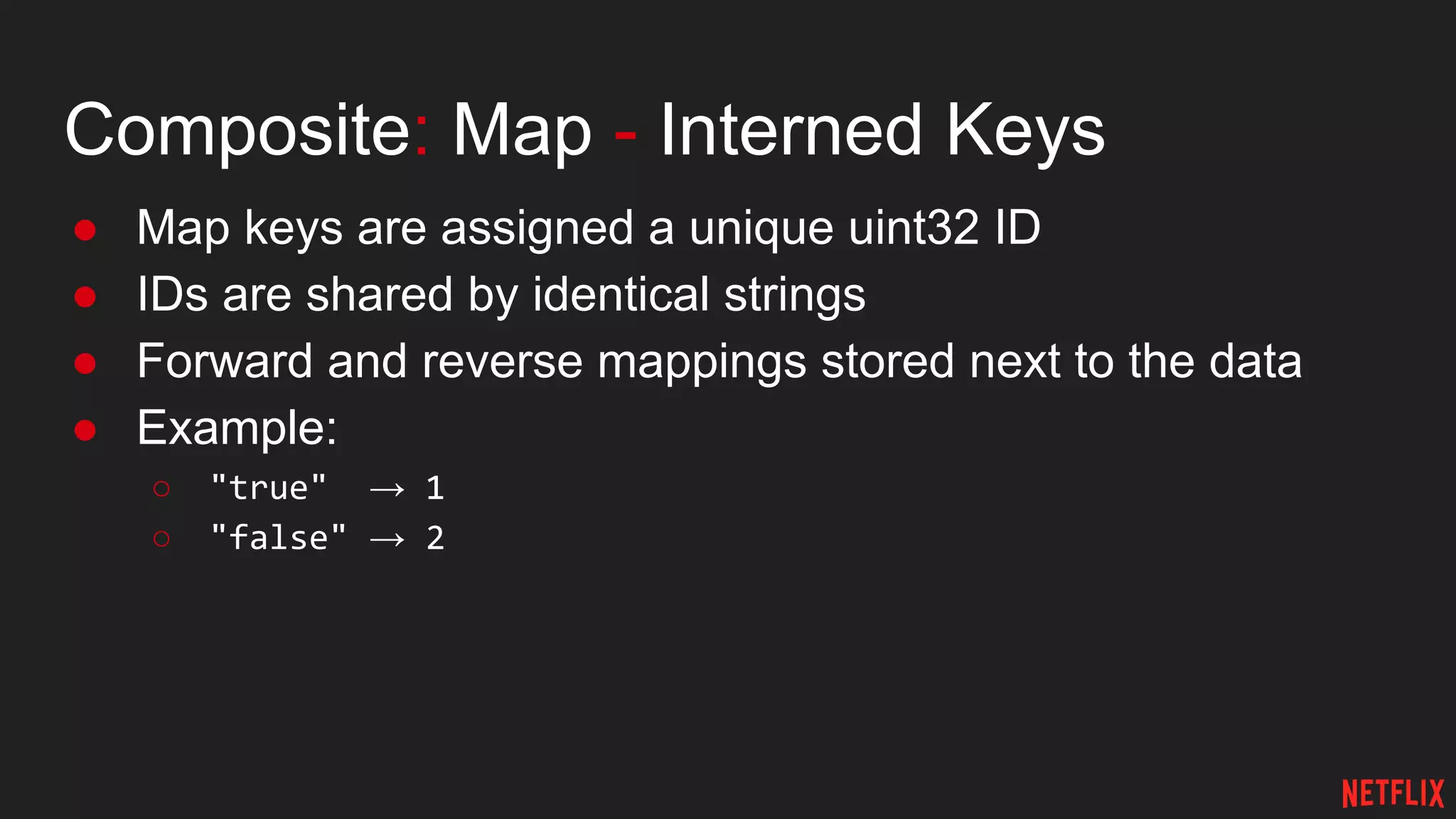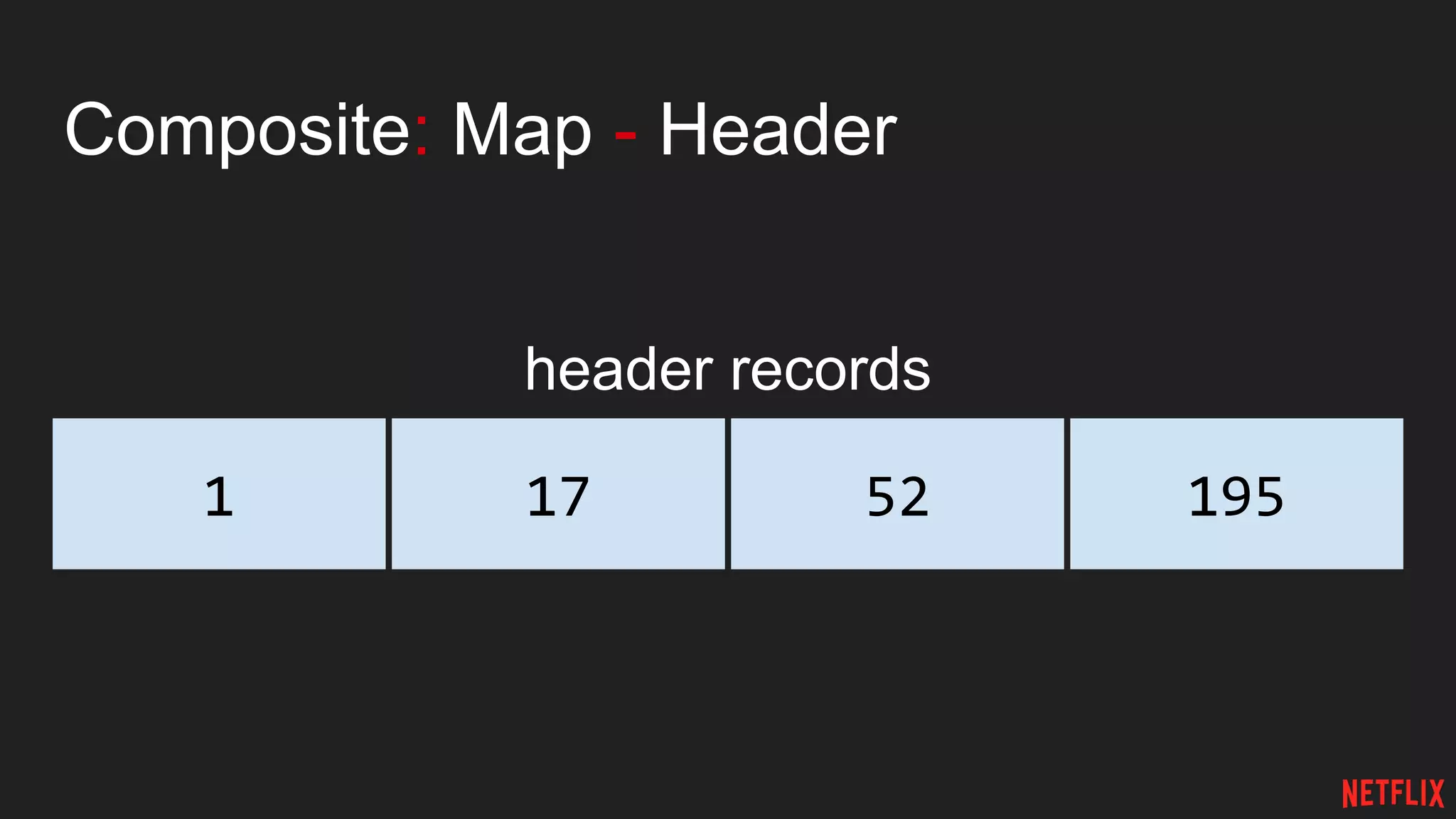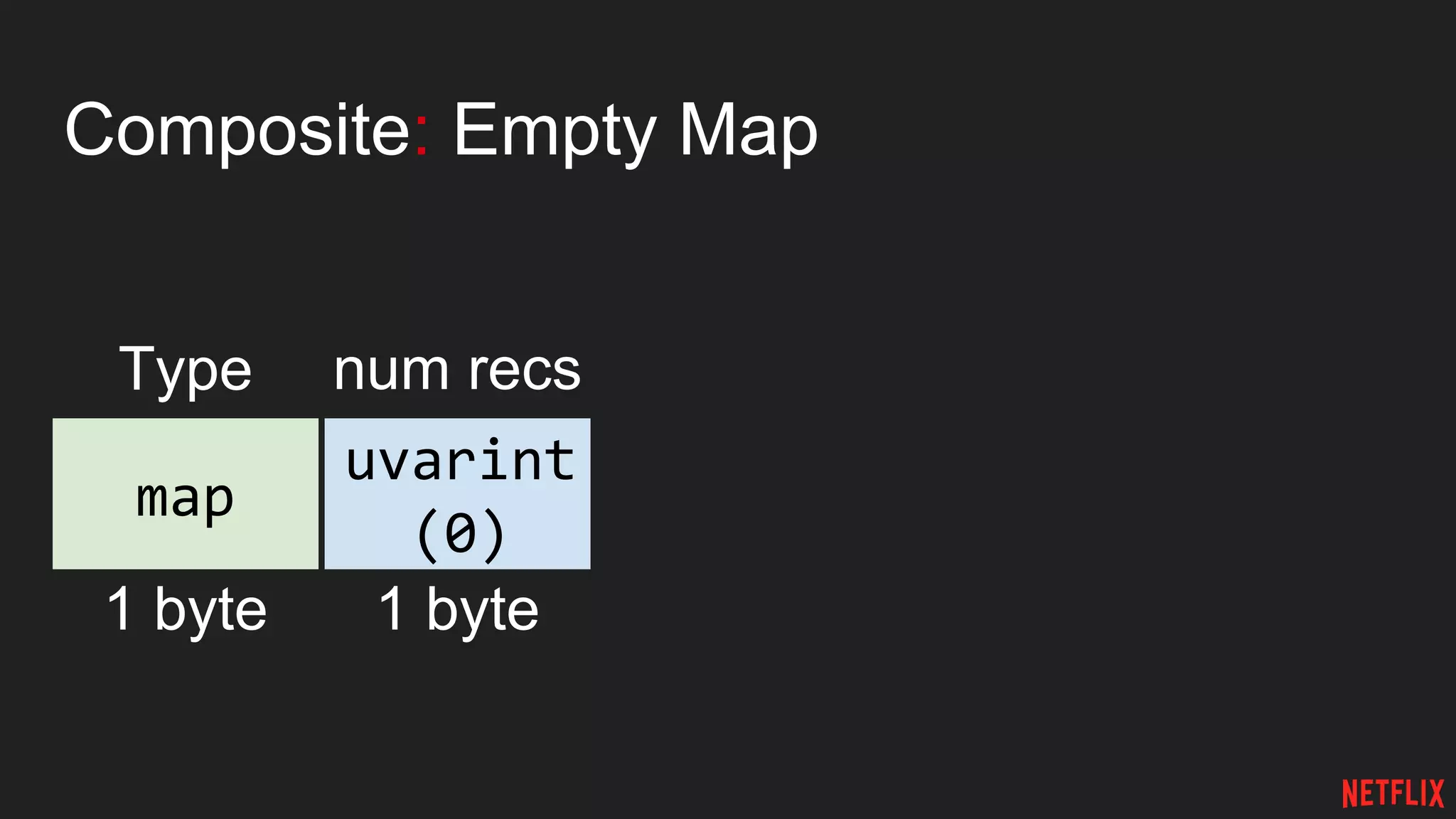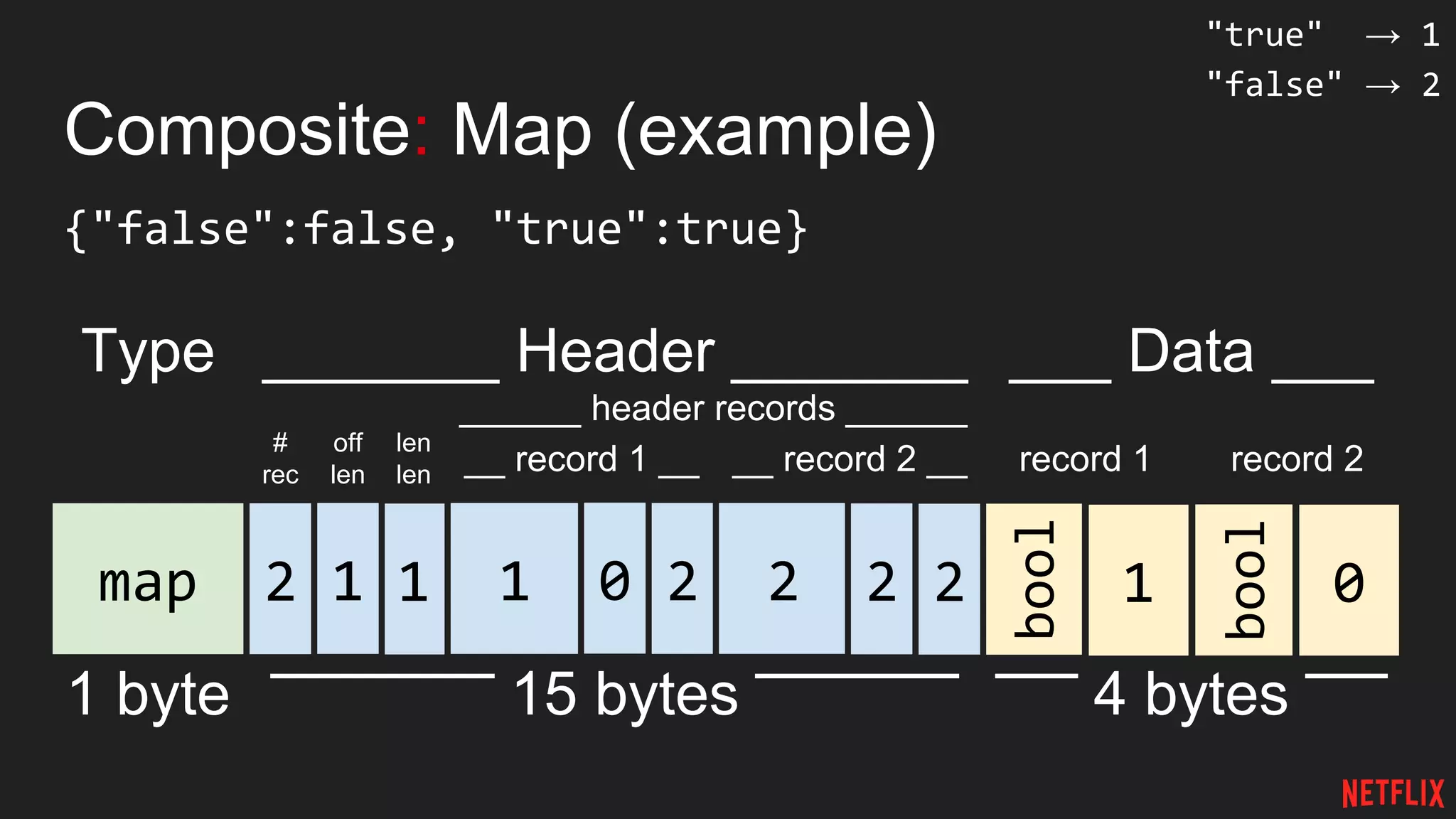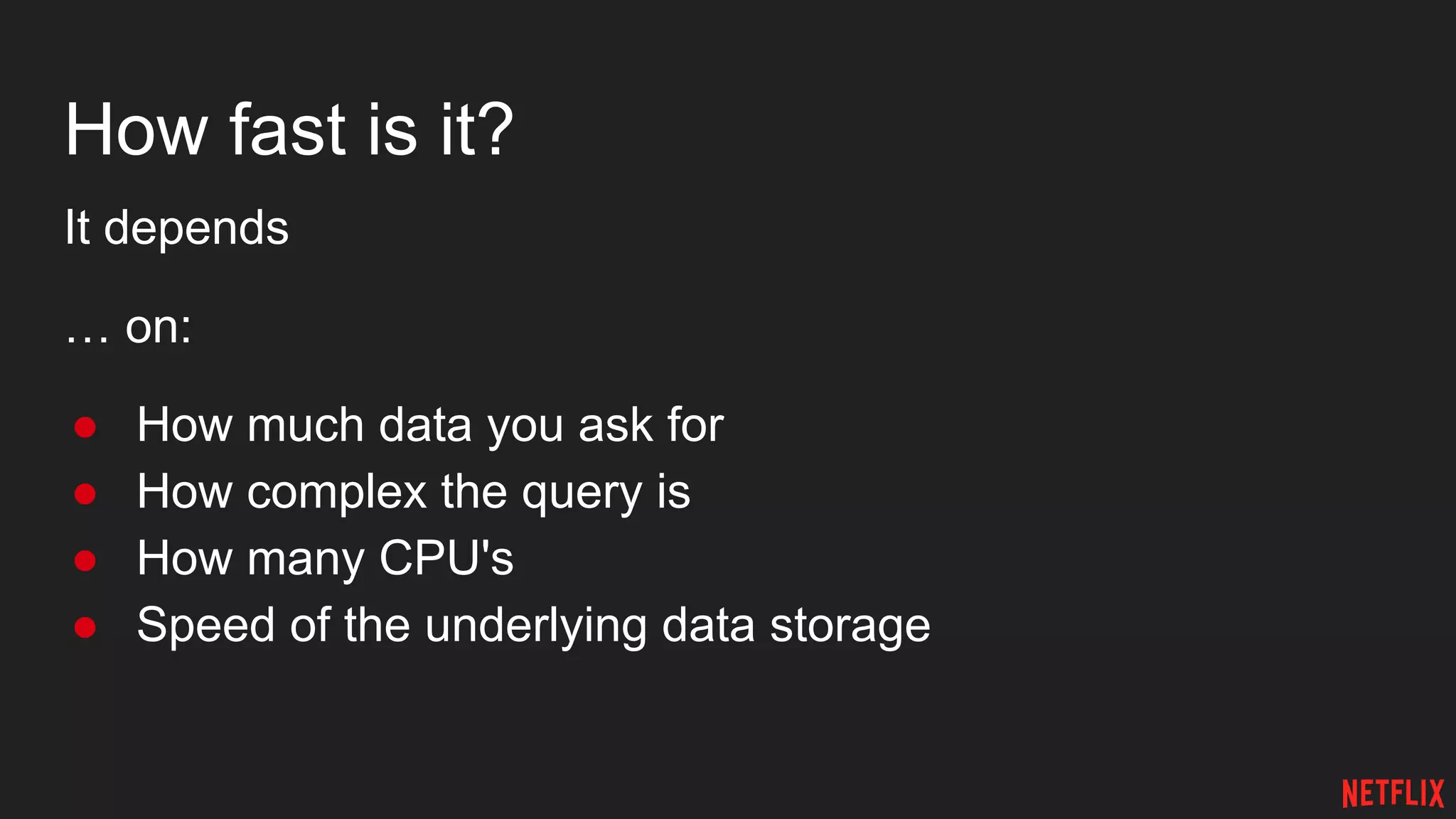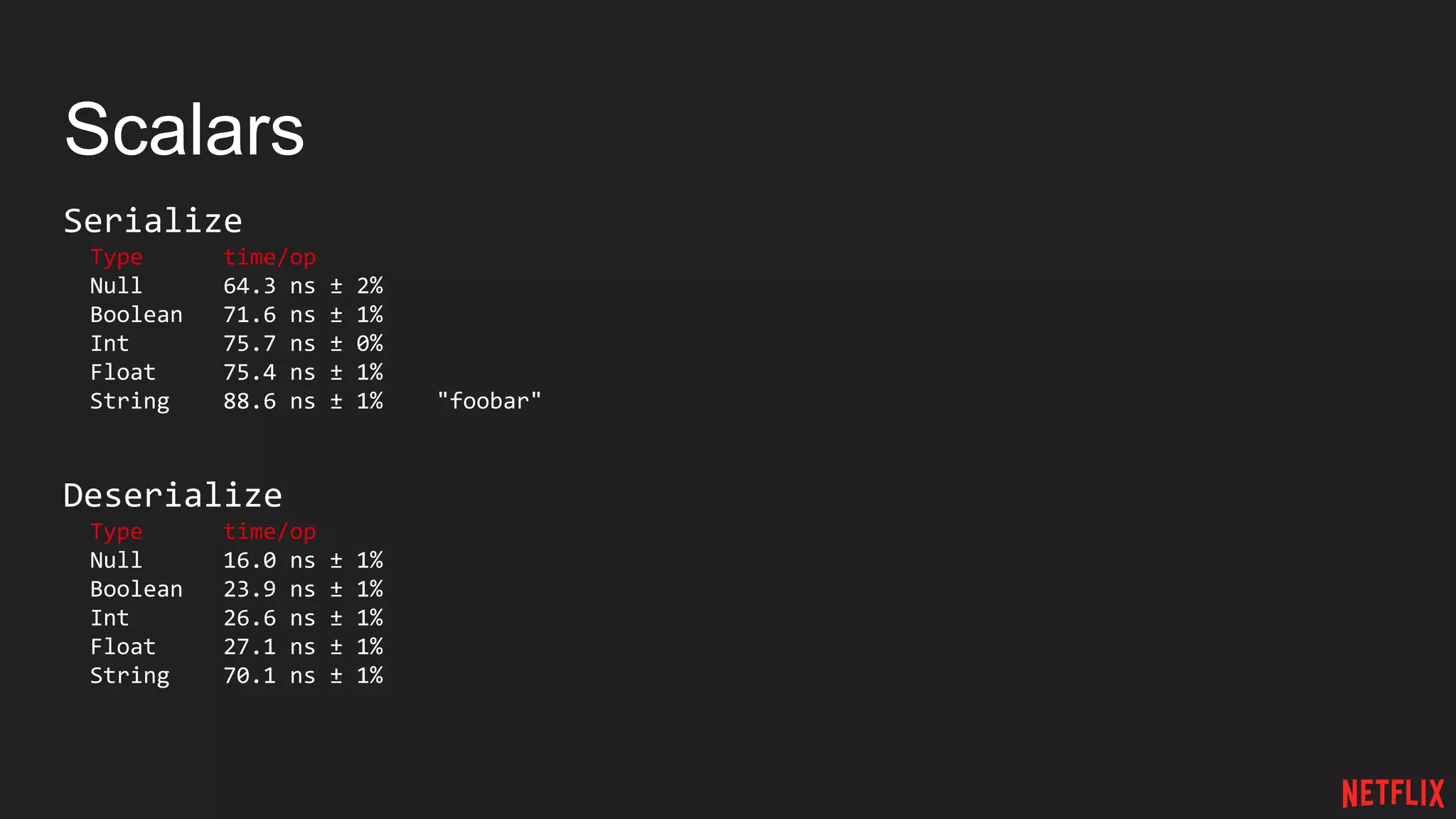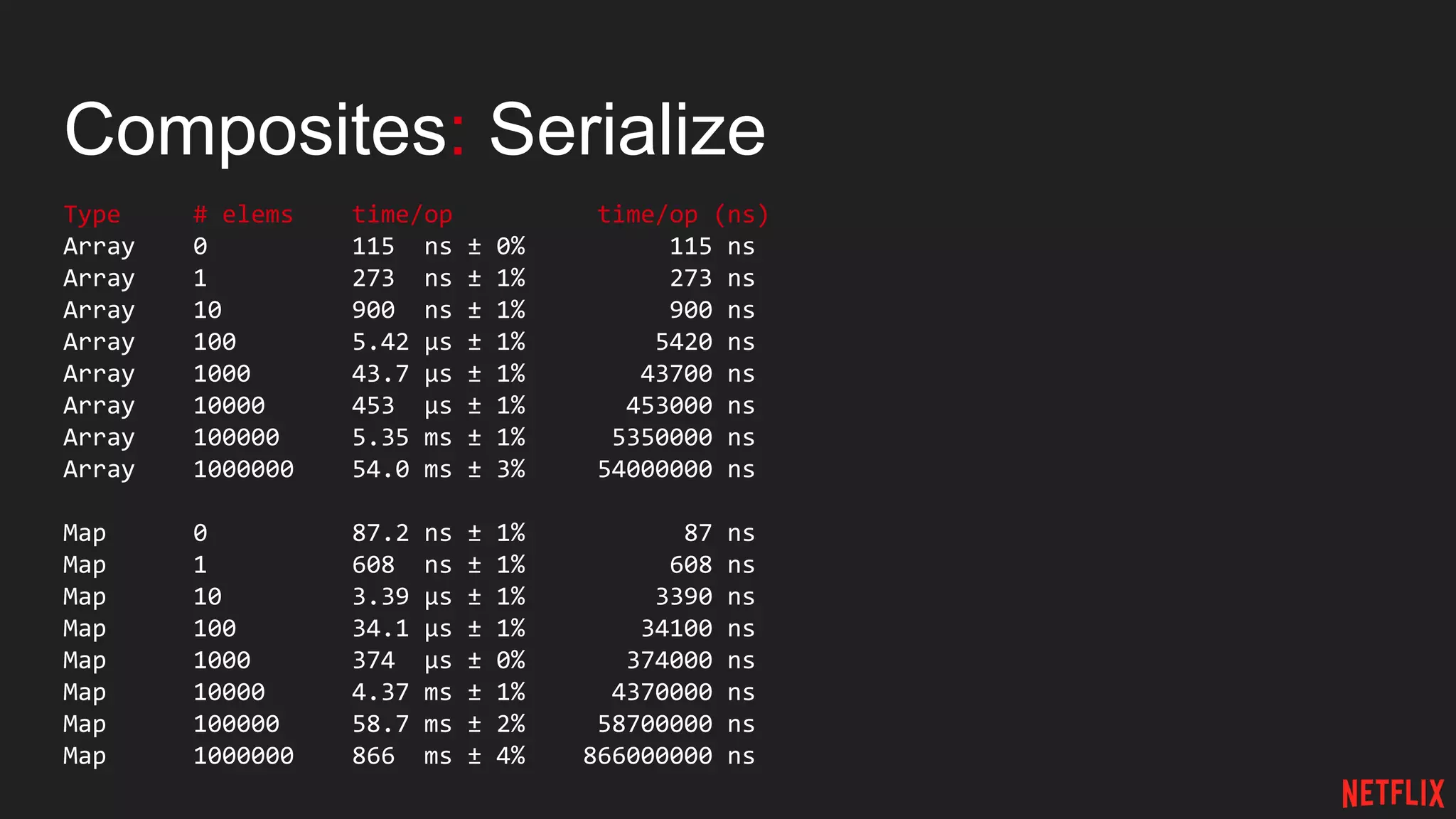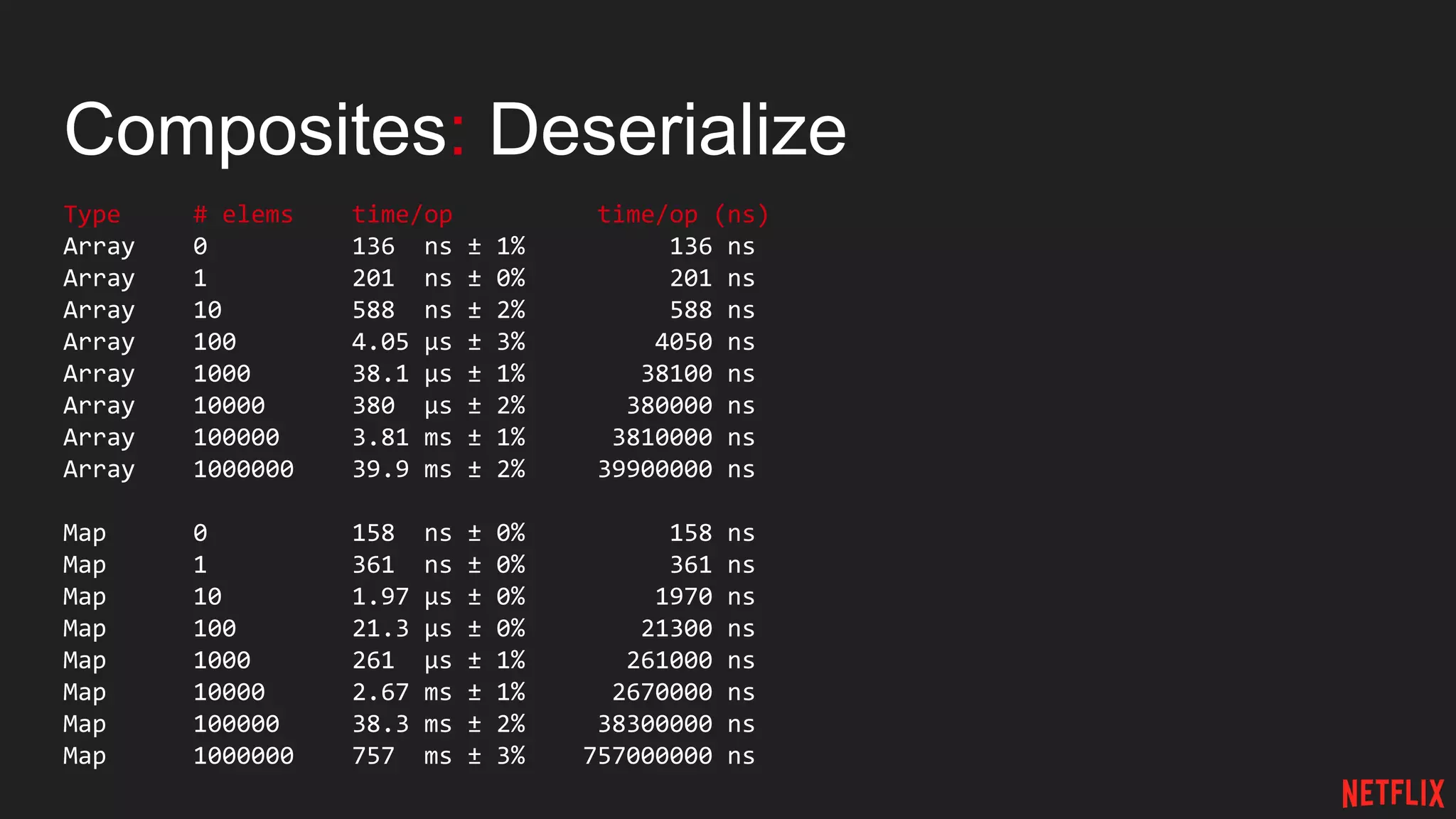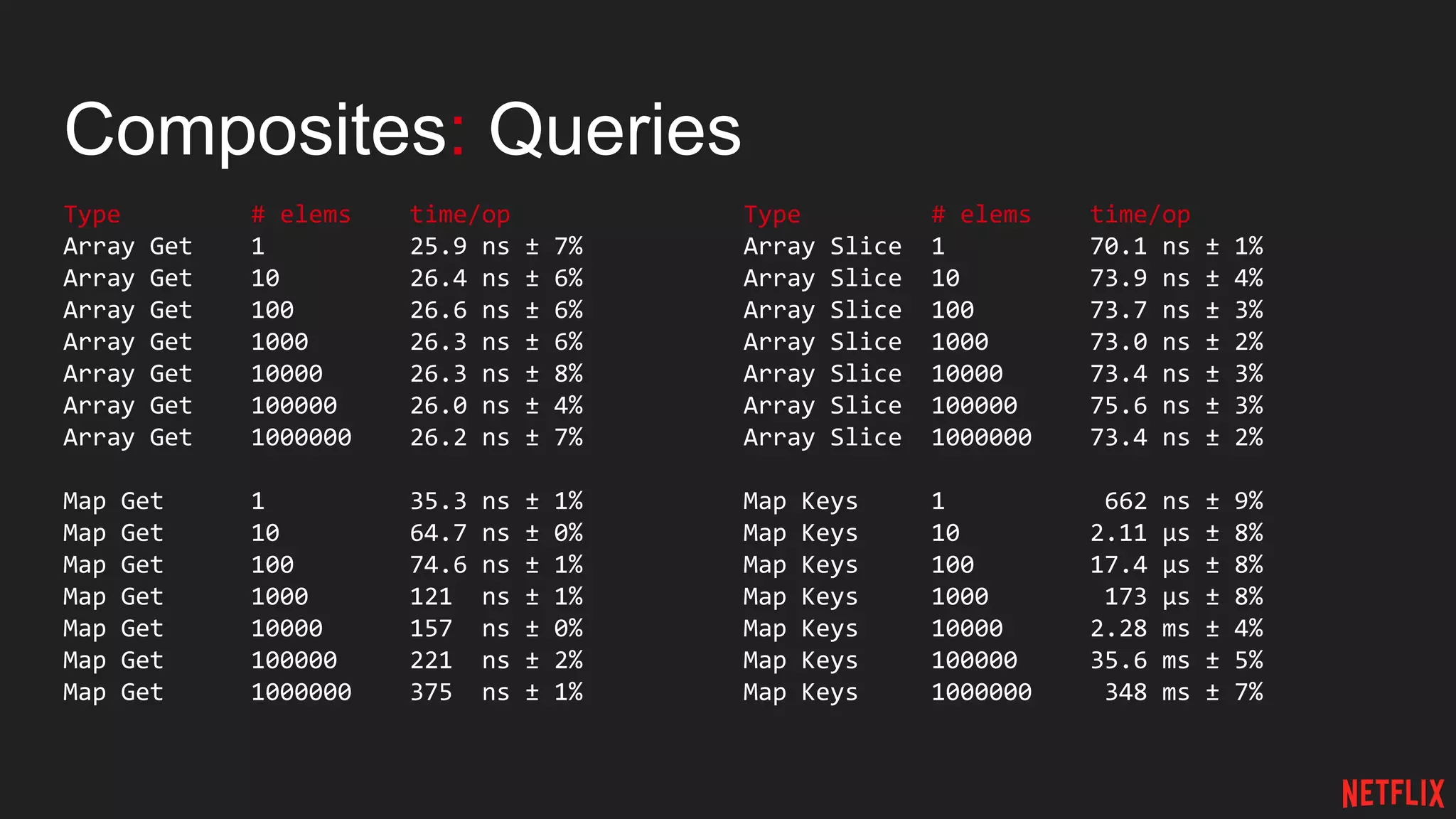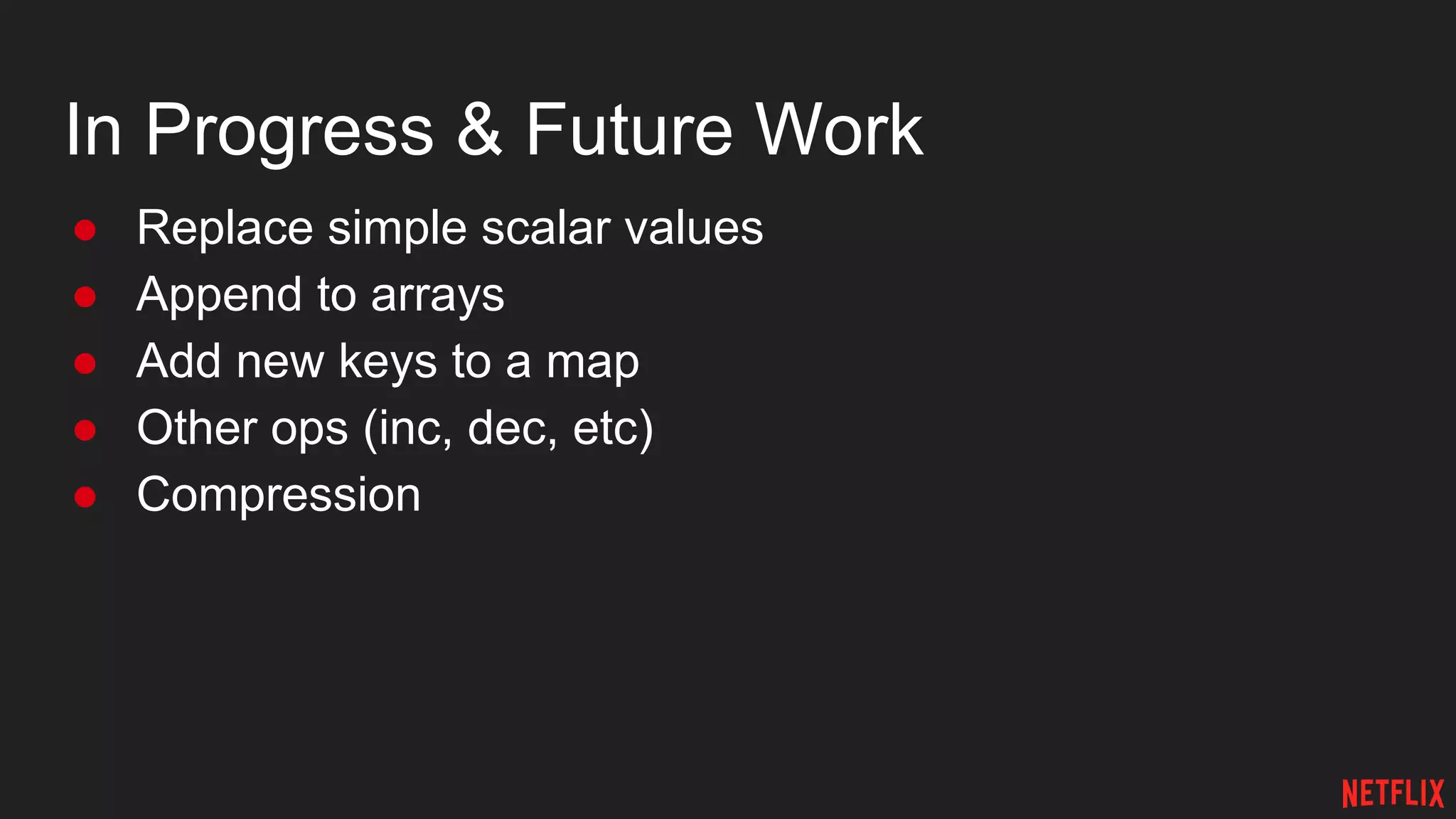The document describes a custom serialization format for querying JSON documents. It discusses motivations for a new format, including supporting queries directly on serialized data without needing to deserialize it first. The format uses bytes to represent scalar values like integers and strings, and variable-length headers and entries to represent composites like arrays and maps. Performance tests show it can serialize and deserialize efficiently at scale, and support fast common queries like getting a single value or slicing an array. Future work may expand the possible operations and add compression support.




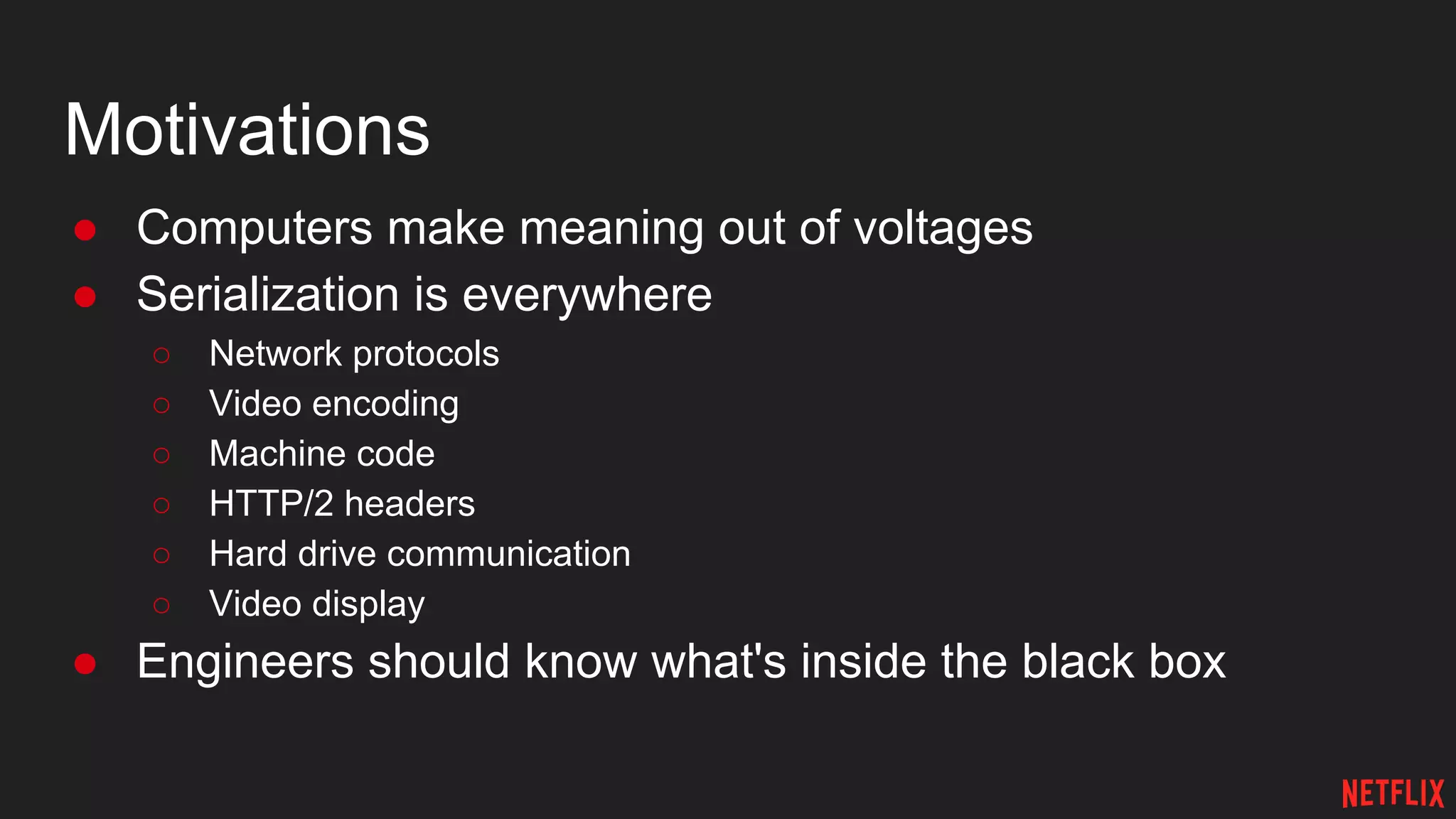
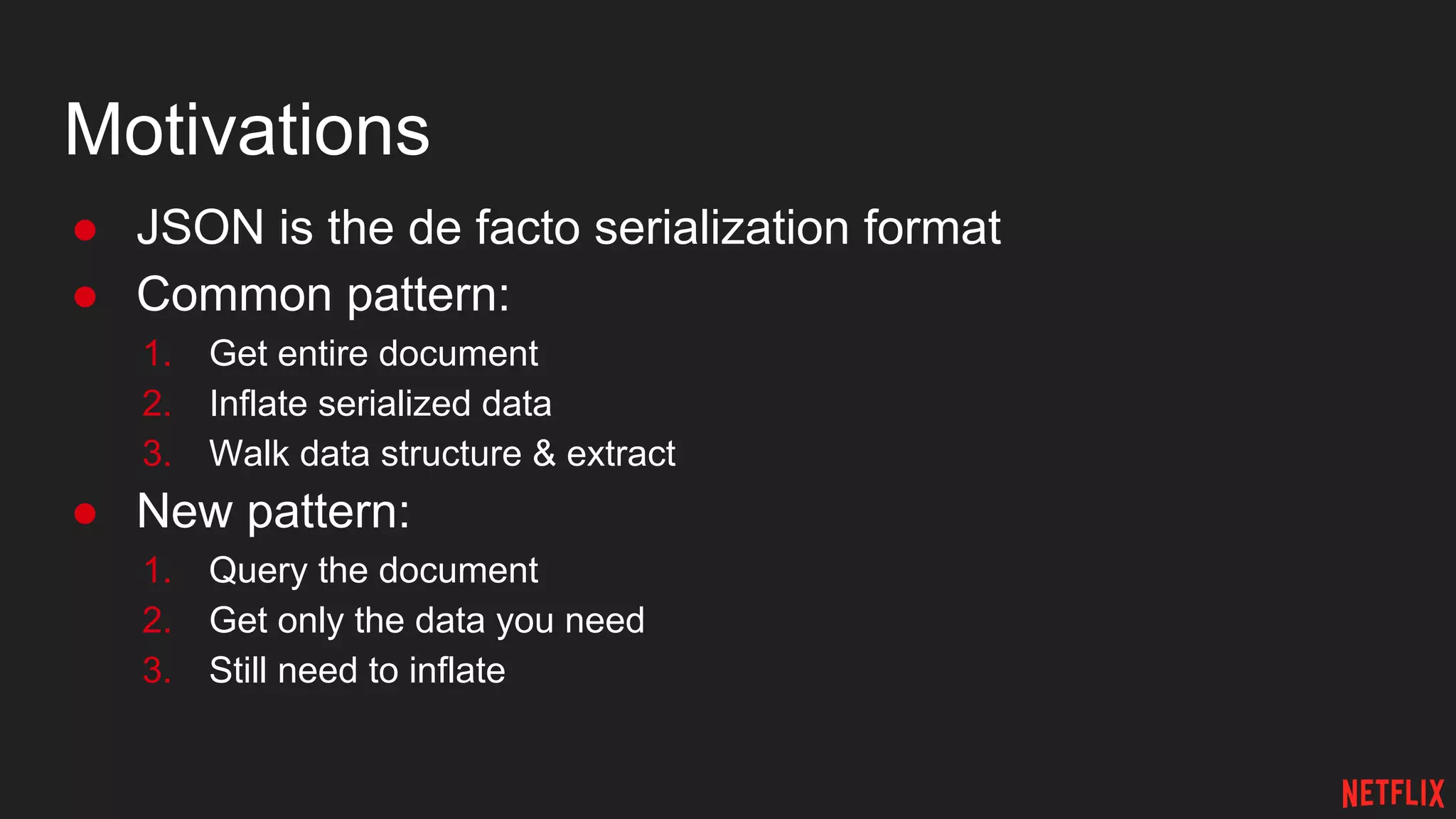
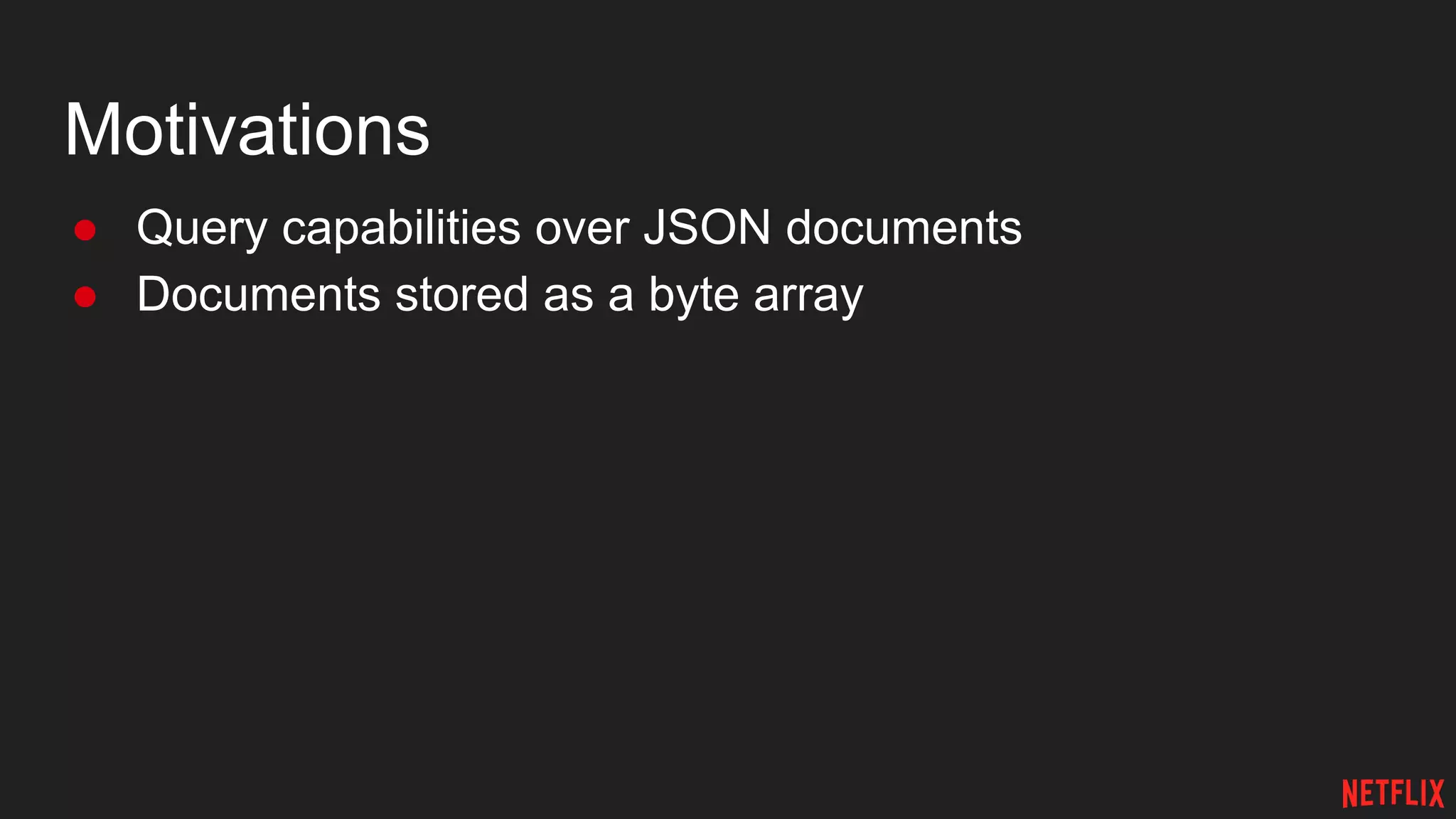
![JSON Document (Augmented)
{
"null" : null,
"boolean" : true,
"integer" : 1,
"float" : 2.3,
"string" : "a string",
"array" : [4, 5, 6],
"map" : {"foo": 1}
}](https://image.slidesharecdn.com/creatingacustomserializationformatgophercon2017-170713194334/75/Creating-a-Custom-Serialization-Format-Gophercon-2017-8-2048.jpg)

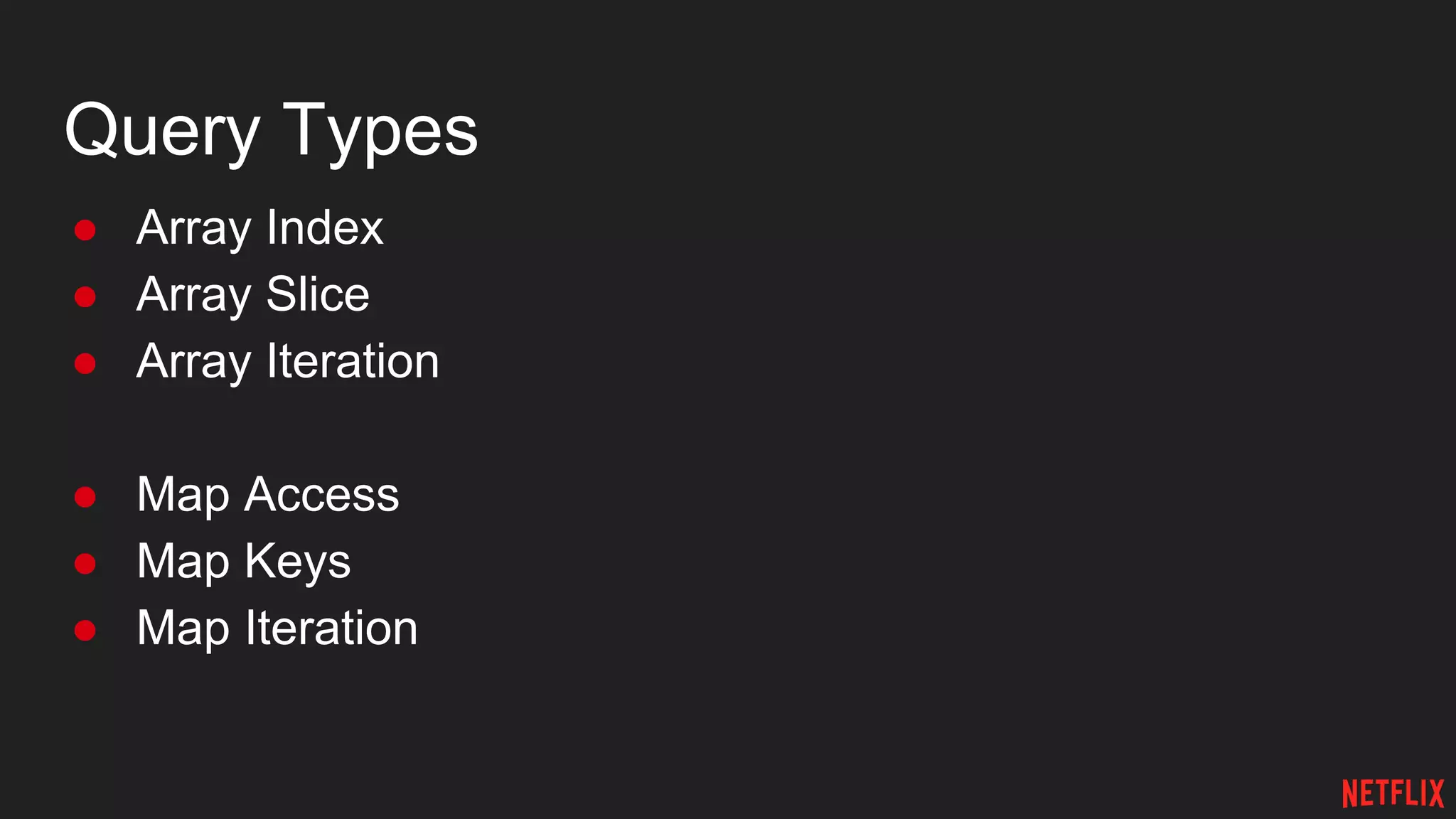
![Array Index
Query: [2]
Result: 3
[1, 2, 3, 4, 5]
↑
Index 2](https://image.slidesharecdn.com/creatingacustomserializationformatgophercon2017-170713194334/75/Creating-a-Custom-Serialization-Format-Gophercon-2017-11-2048.jpg)
![Array Slice
Query: [2:-1]
Result: [3, 4]
[1, 2, (3, 4), 5]
↑
Index 2 until 4](https://image.slidesharecdn.com/creatingacustomserializationformatgophercon2017-170713194334/75/Creating-a-Custom-Serialization-Format-Gophercon-2017-12-2048.jpg)
![Array Iteration
Query: .a[] [0]
Result: [1,2,3,4,5]
[[1], [2], [3], [4], [5]]
↑ ↑ ↑ ↑ ↑
Index 0 of each list](https://image.slidesharecdn.com/creatingacustomserializationformatgophercon2017-170713194334/75/Creating-a-Custom-Serialization-Format-Gophercon-2017-13-2048.jpg)
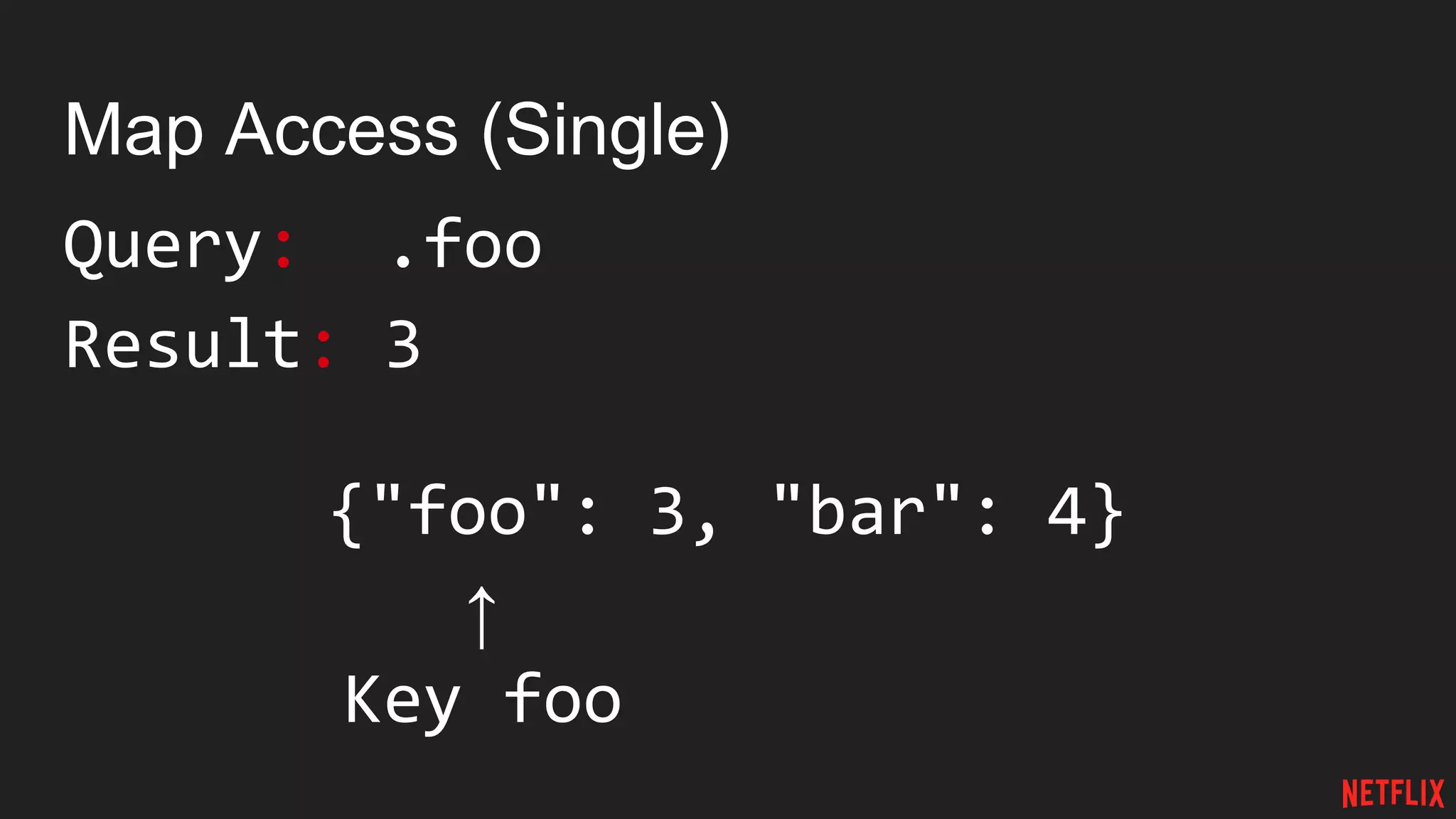
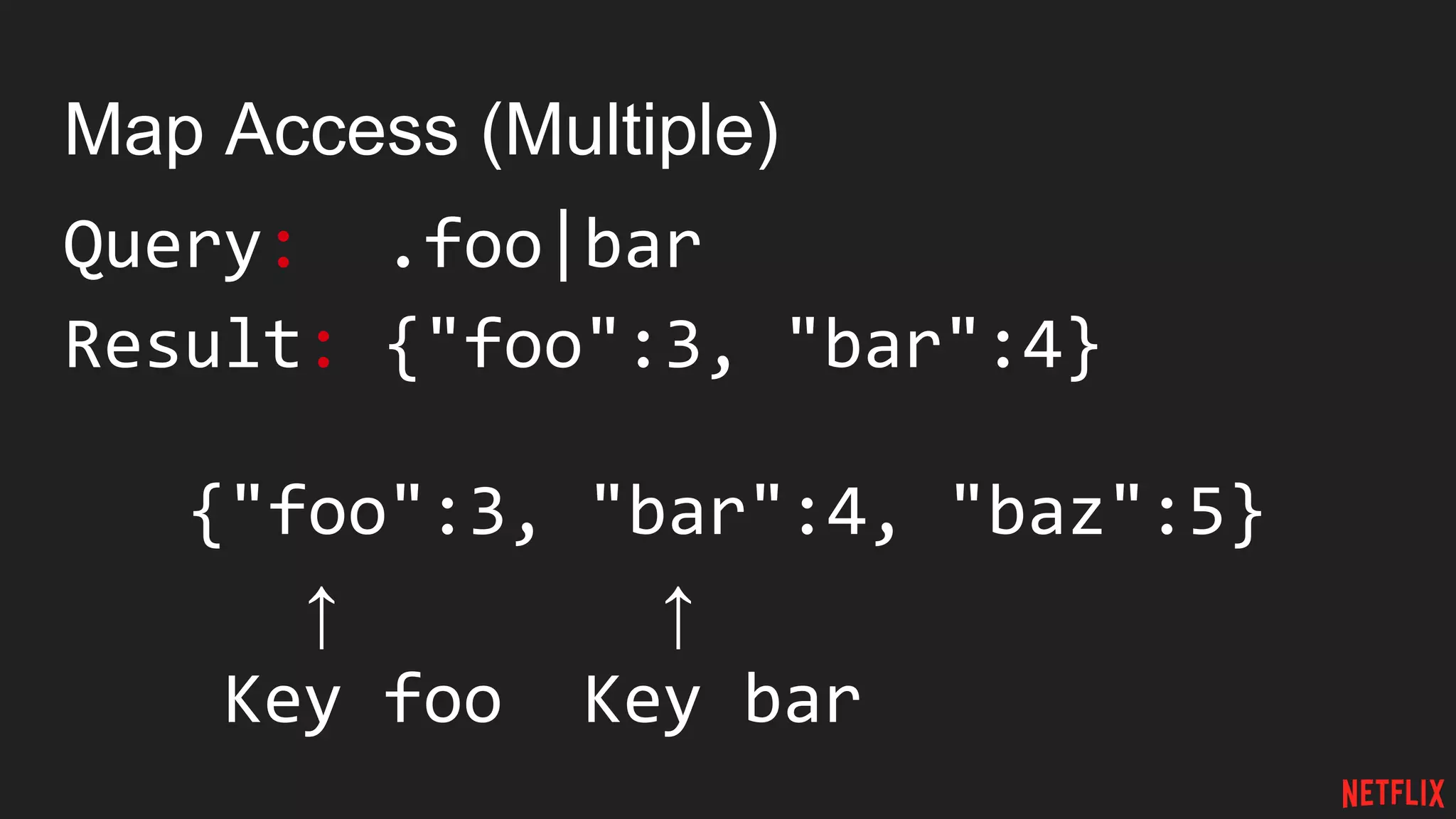
![Map Keys
Query: keys
Result: ["foo", "bar"]
{"foo": 3, "bar": 4}
↑ ↑
Map Keys](https://image.slidesharecdn.com/creatingacustomserializationformatgophercon2017-170713194334/75/Creating-a-Custom-Serialization-Format-Gophercon-2017-16-2048.jpg)
![Map Iteration
Query: .m[] [0]
Result: {"foo": 3, "bar": 4}
{"foo": [3], "bar": [4]}
↑ ↑
Index 0 of each array value](https://image.slidesharecdn.com/creatingacustomserializationformatgophercon2017-170713194334/75/Creating-a-Custom-Serialization-Format-Gophercon-2017-17-2048.jpg)
![Example
{"foo": {"k1": [3,4]},
"bar": {"k1": [5,6]}}
Query: .m[] .k1 [0]
Result: {"foo": 3, "bar": 5}](https://image.slidesharecdn.com/creatingacustomserializationformatgophercon2017-170713194334/75/Creating-a-Custom-Serialization-Format-Gophercon-2017-18-2048.jpg)
![Example
{"foo": {"1":1, "2":2, "3":3},
"bar": {"4":4, "5":5, "6":6}}
Query: .m[] keys
Result: {"foo": ["1","2","3"],
"bar": ["4","5","6"] }](https://image.slidesharecdn.com/creatingacustomserializationformatgophercon2017-170713194334/75/Creating-a-Custom-Serialization-Format-Gophercon-2017-19-2048.jpg)

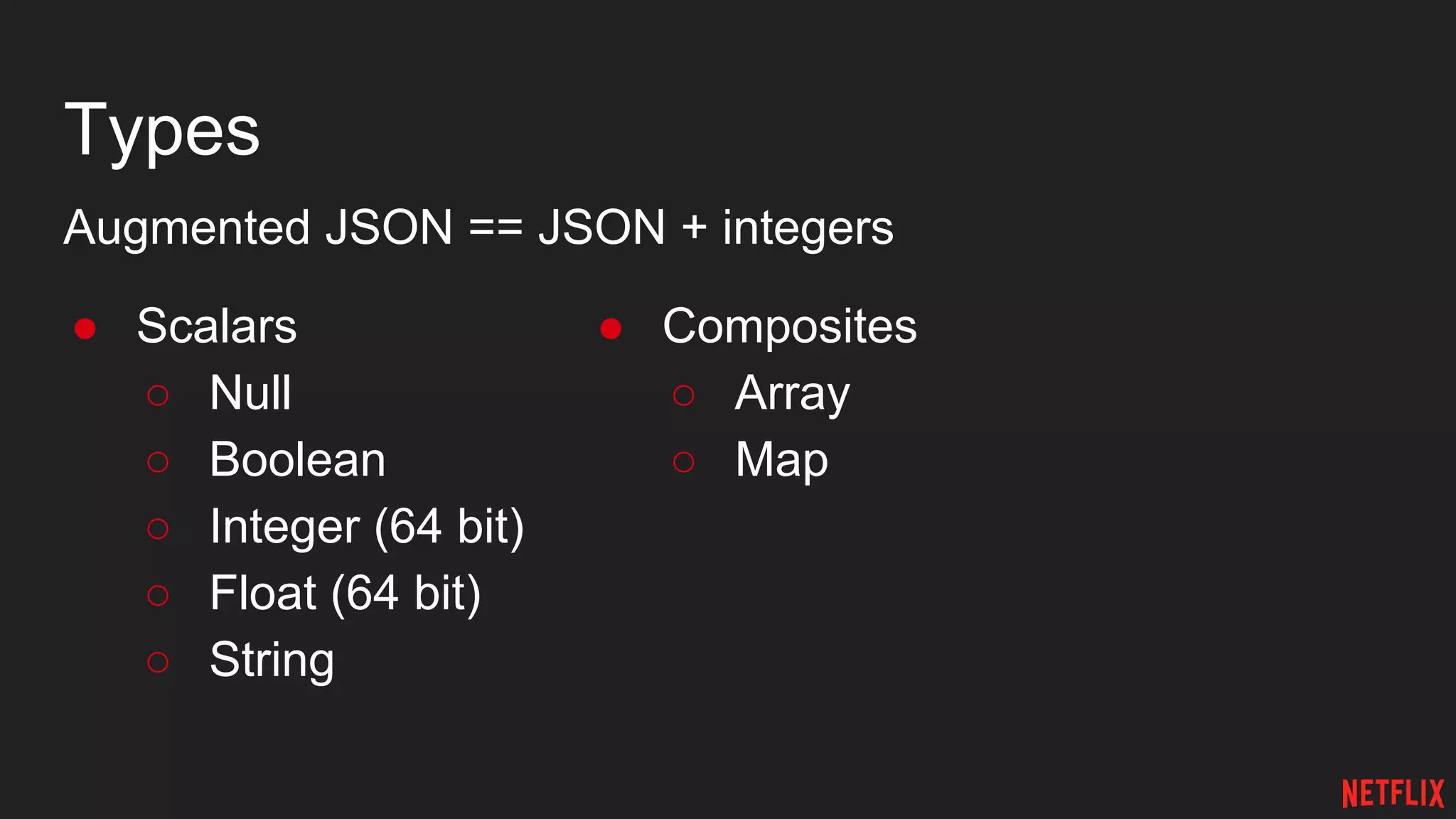
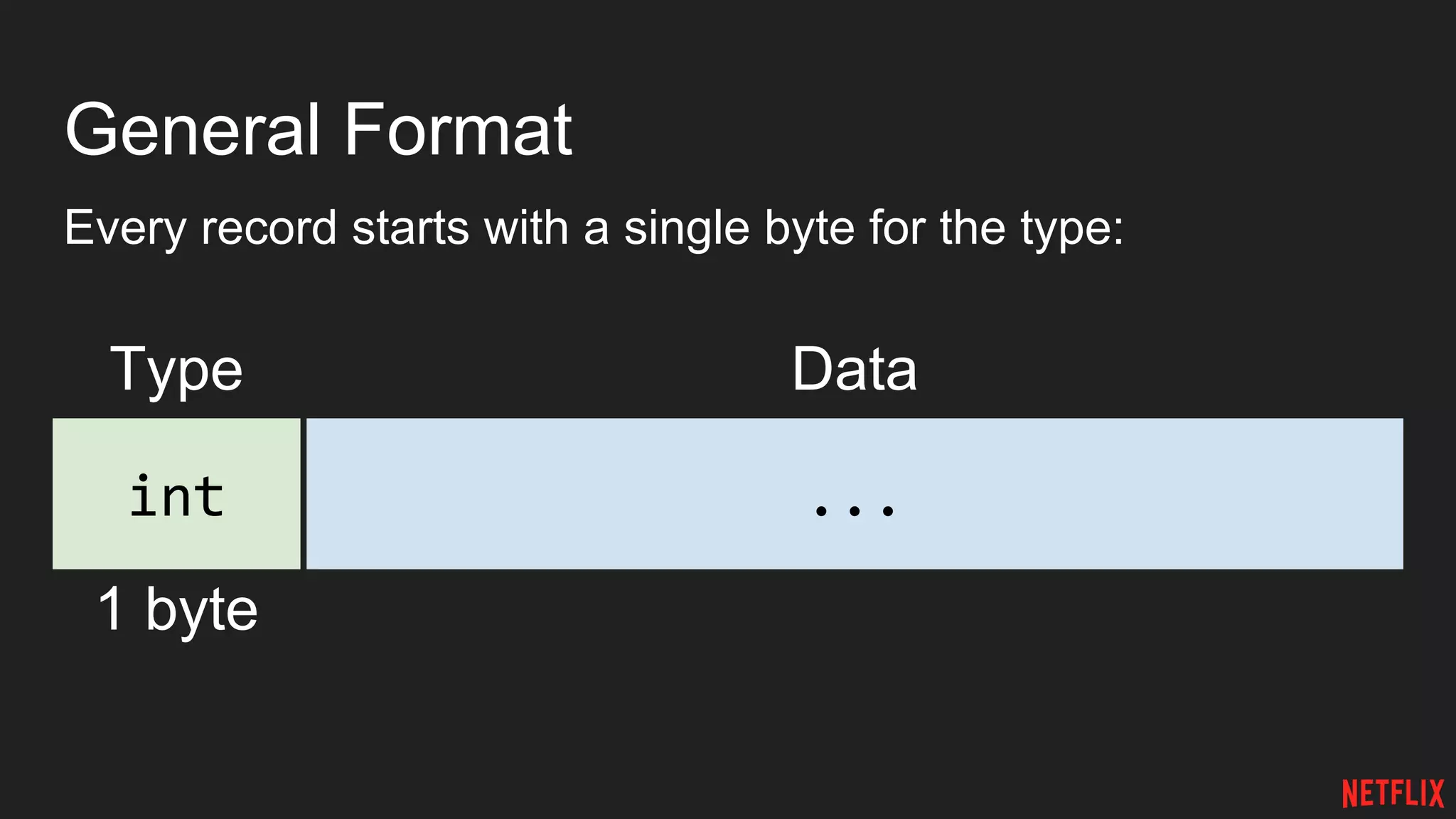
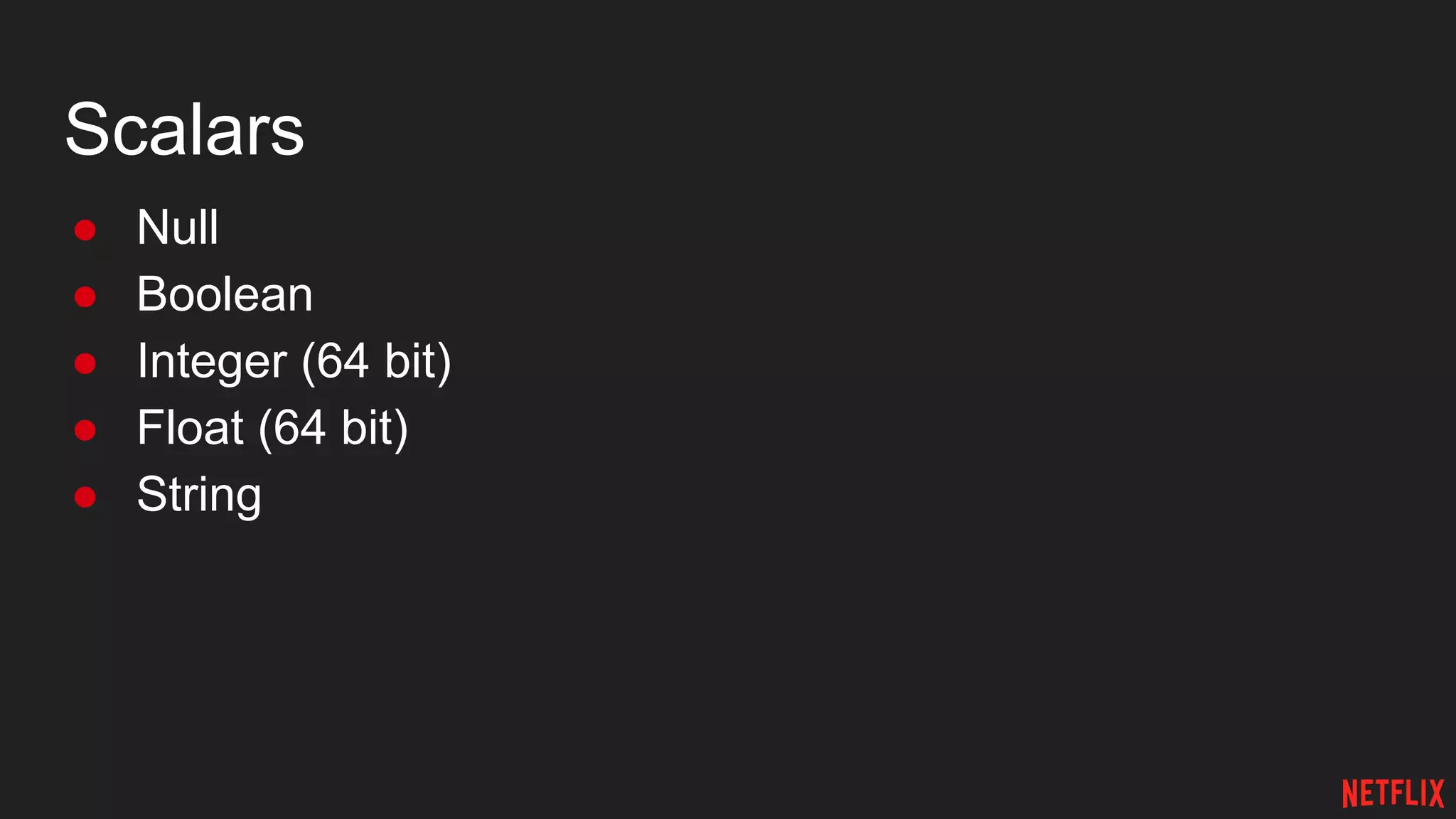
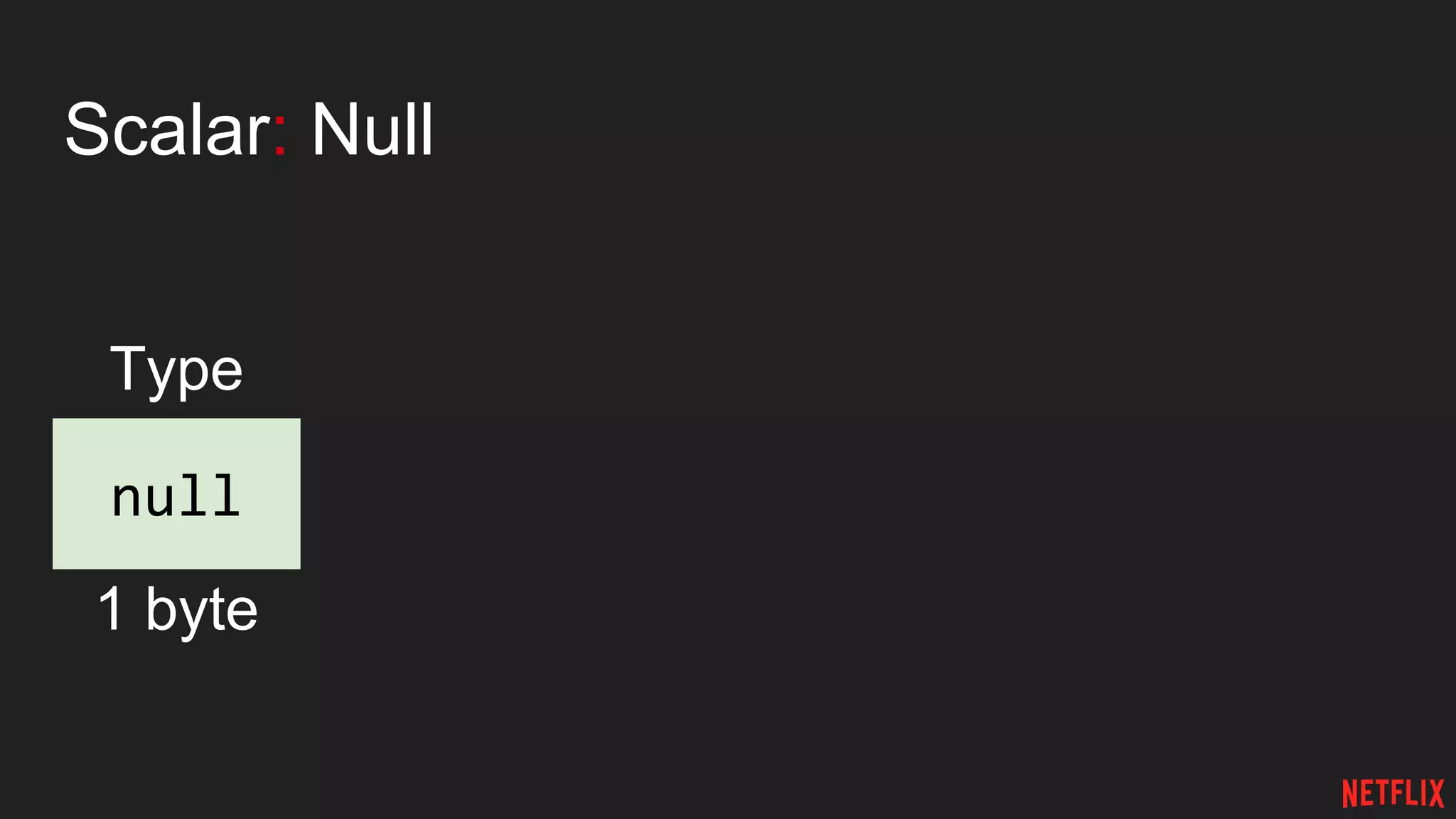
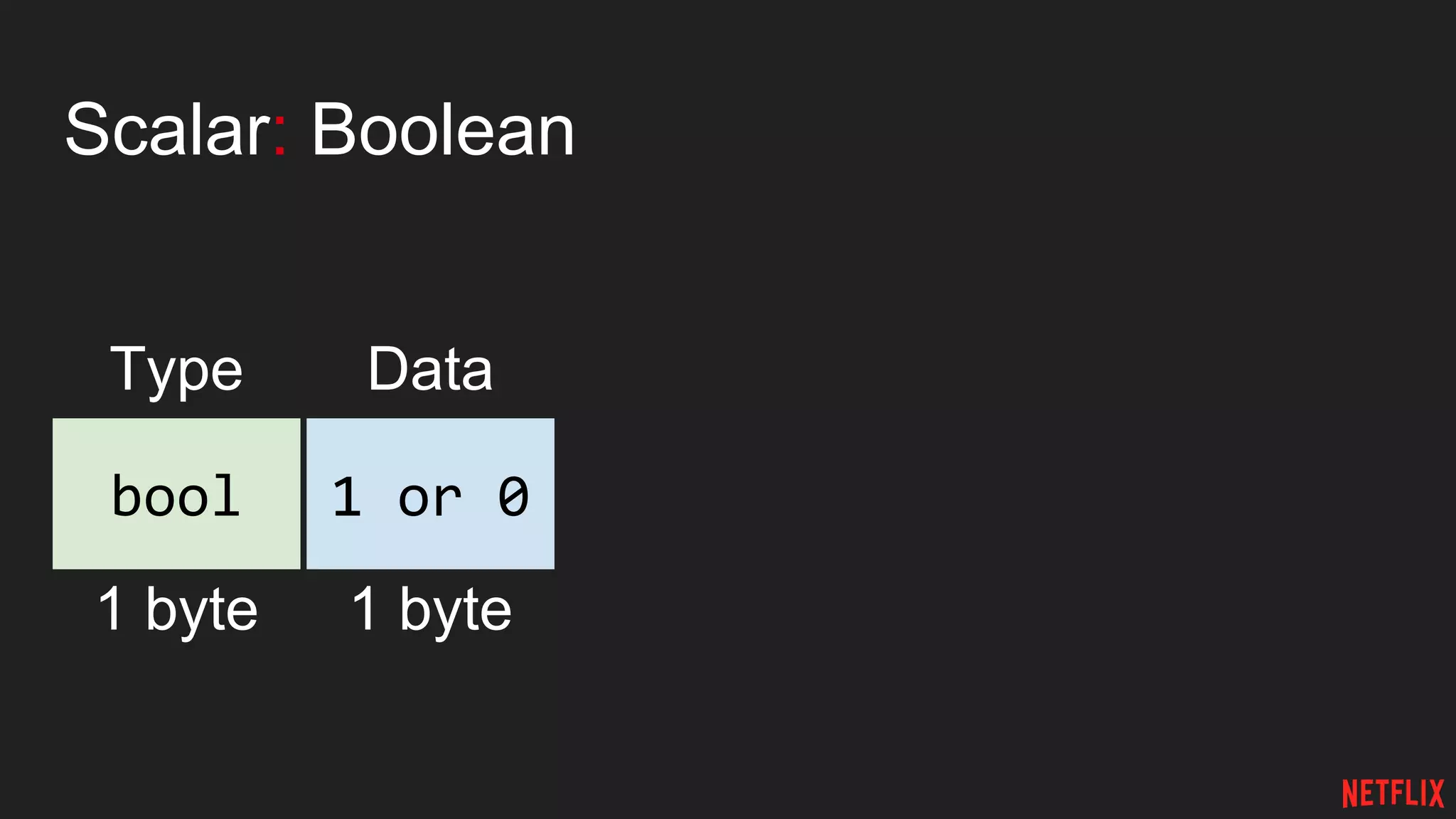
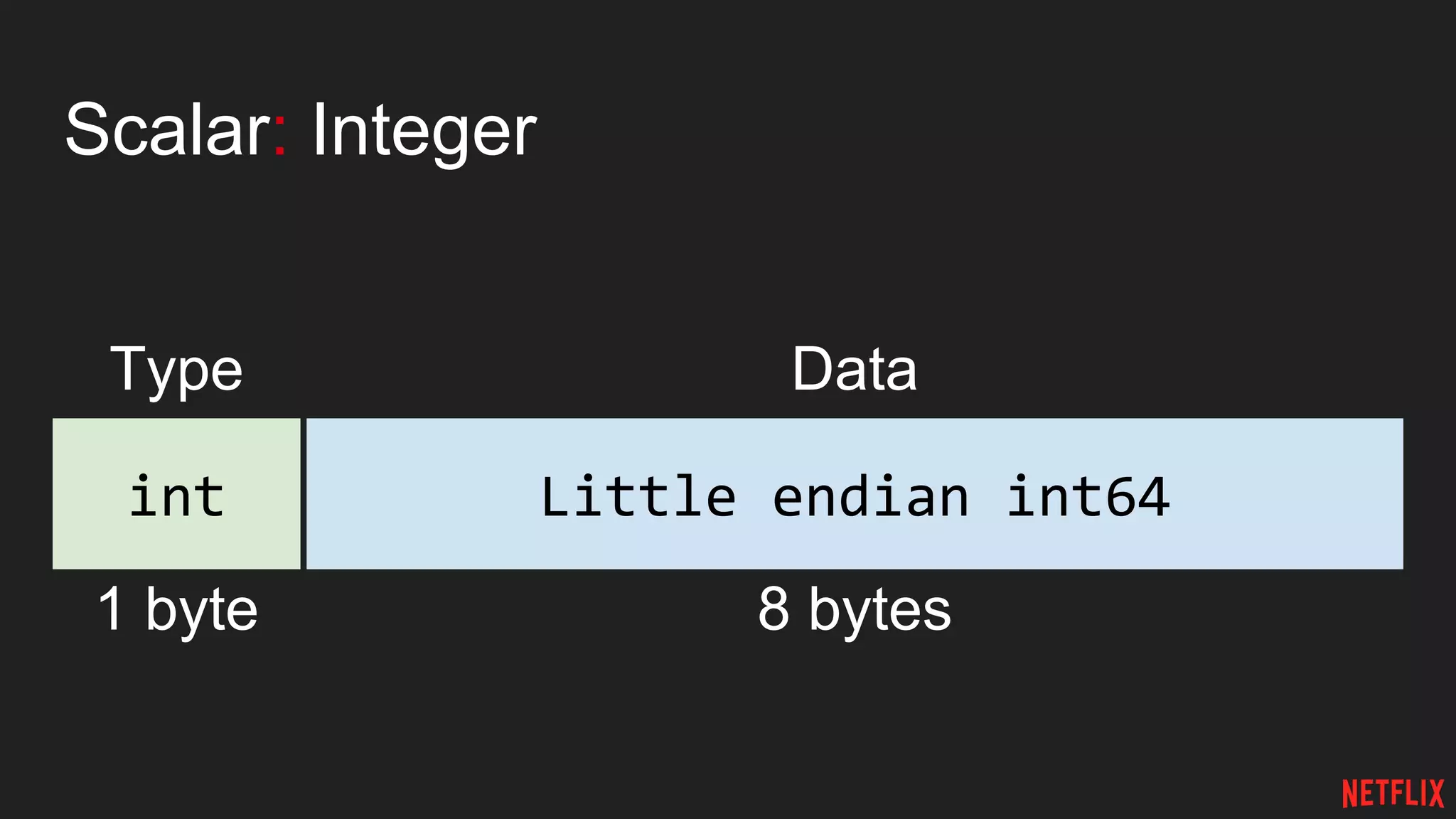
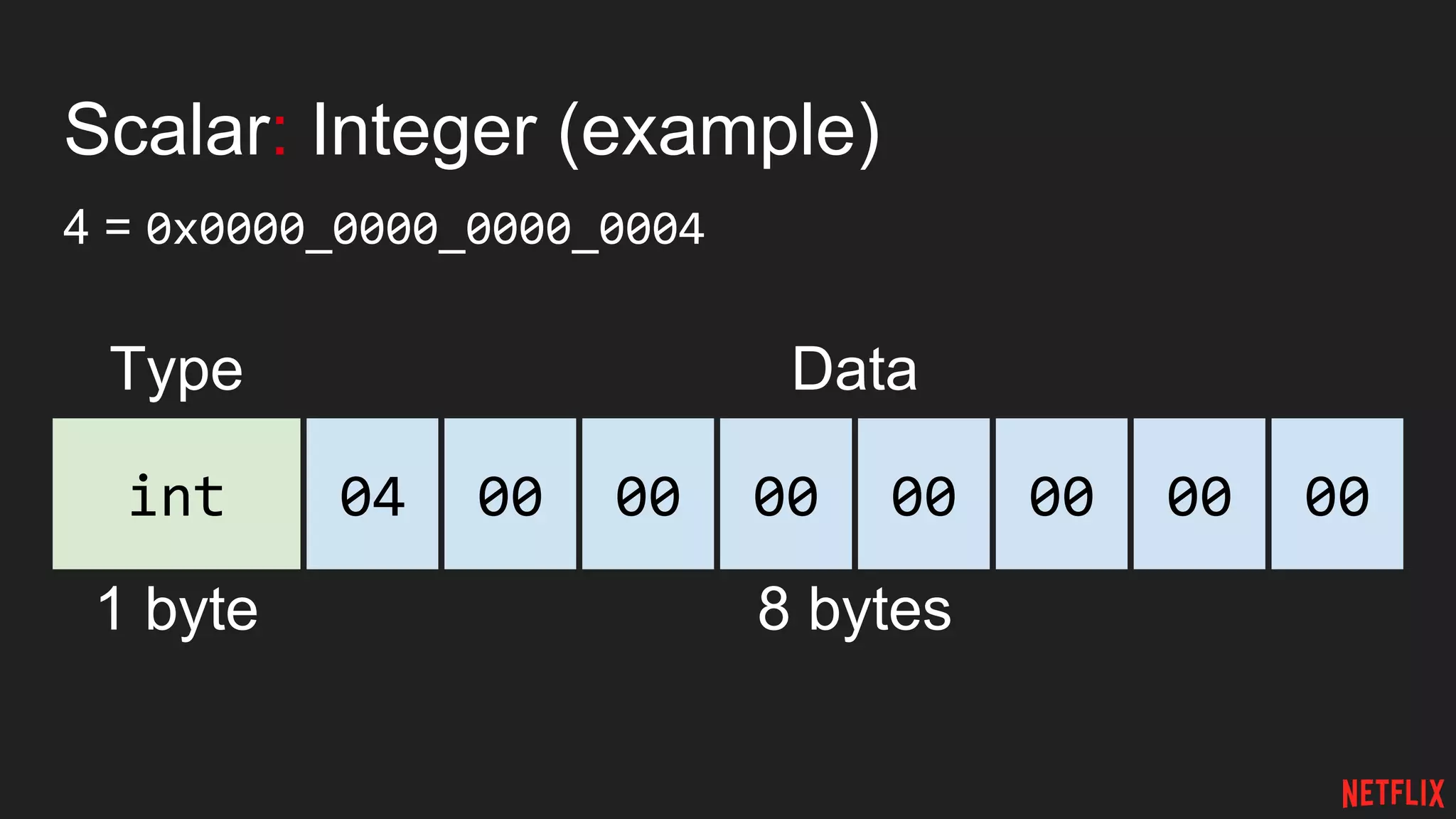
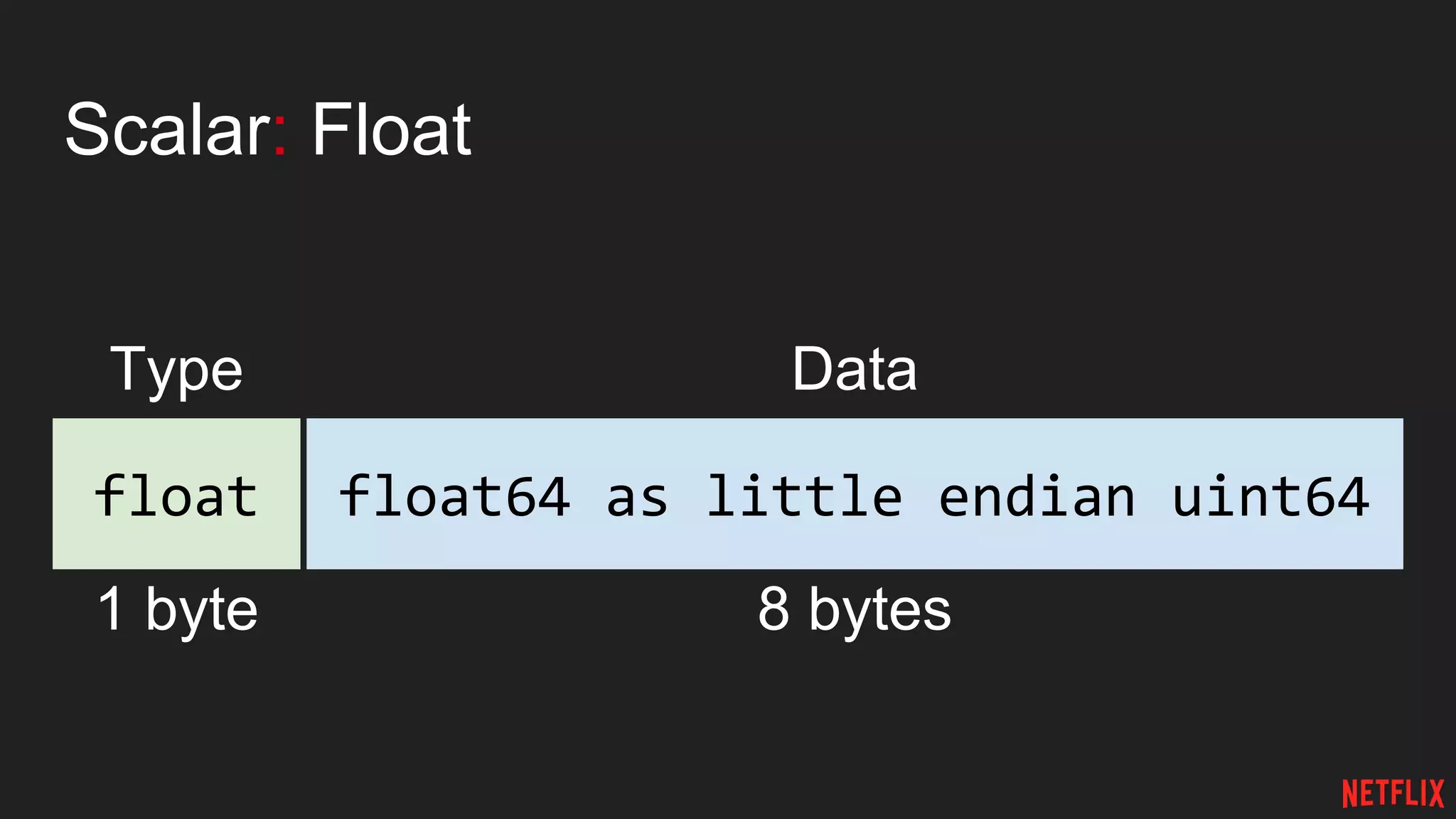
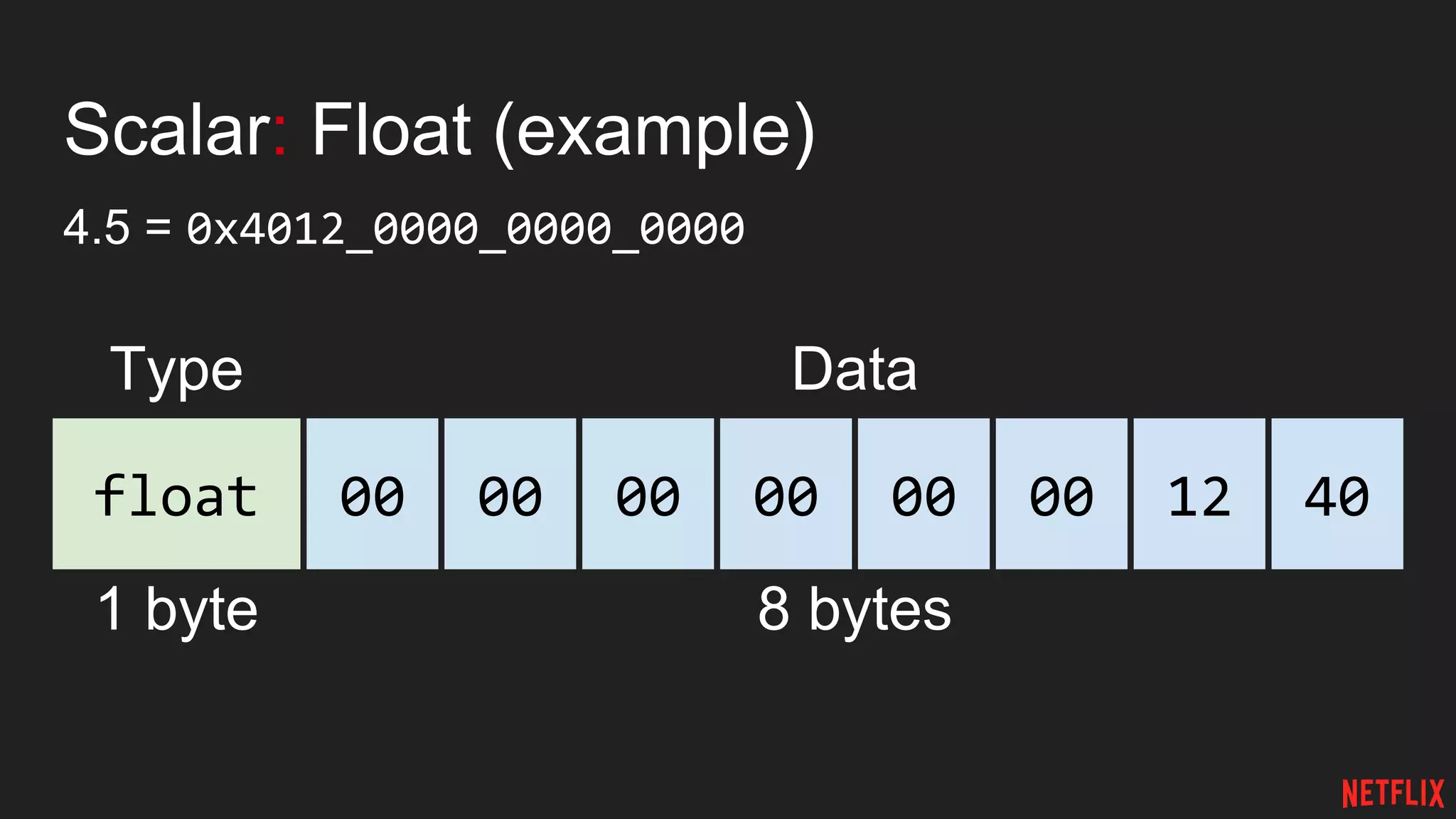
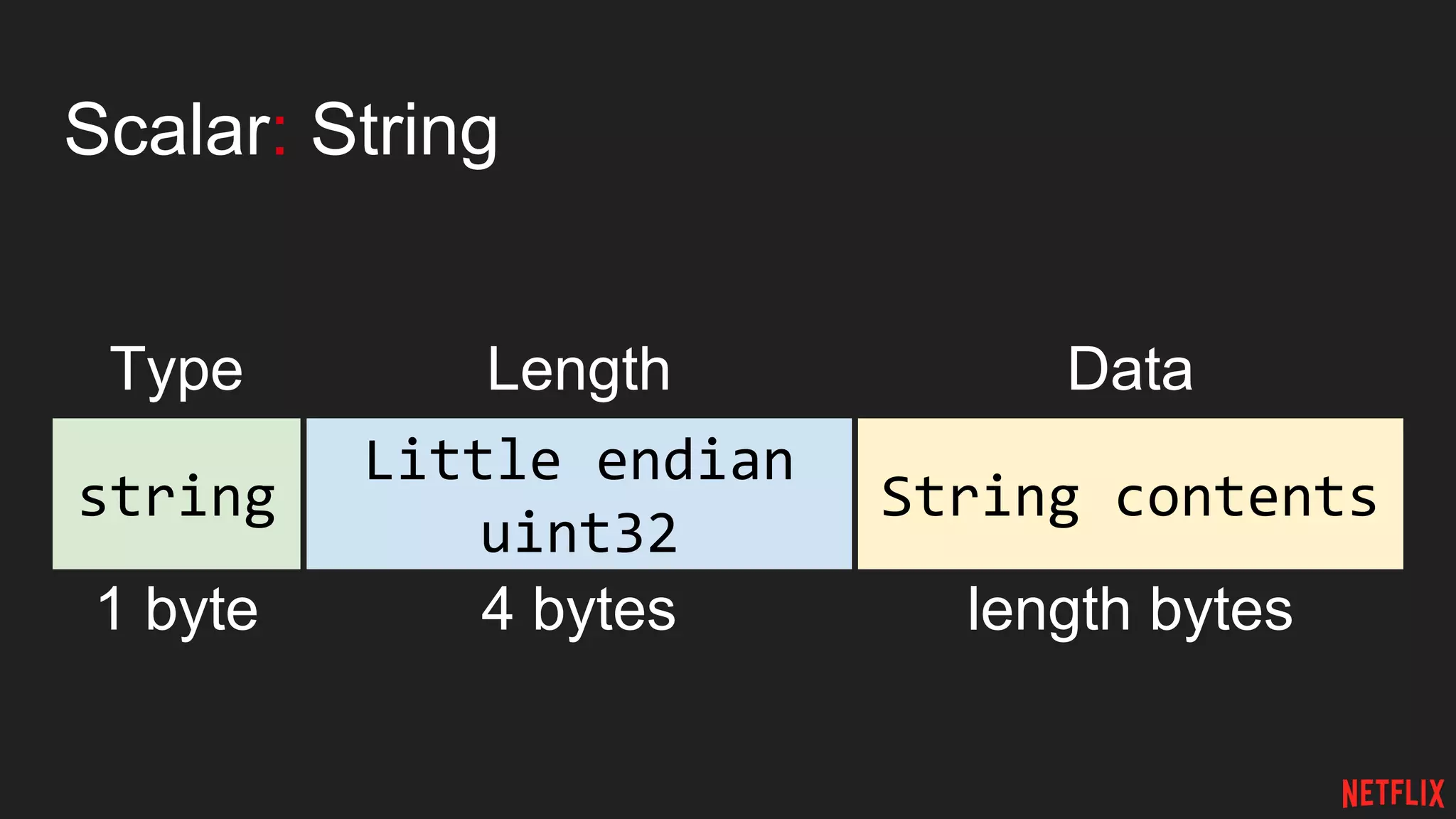
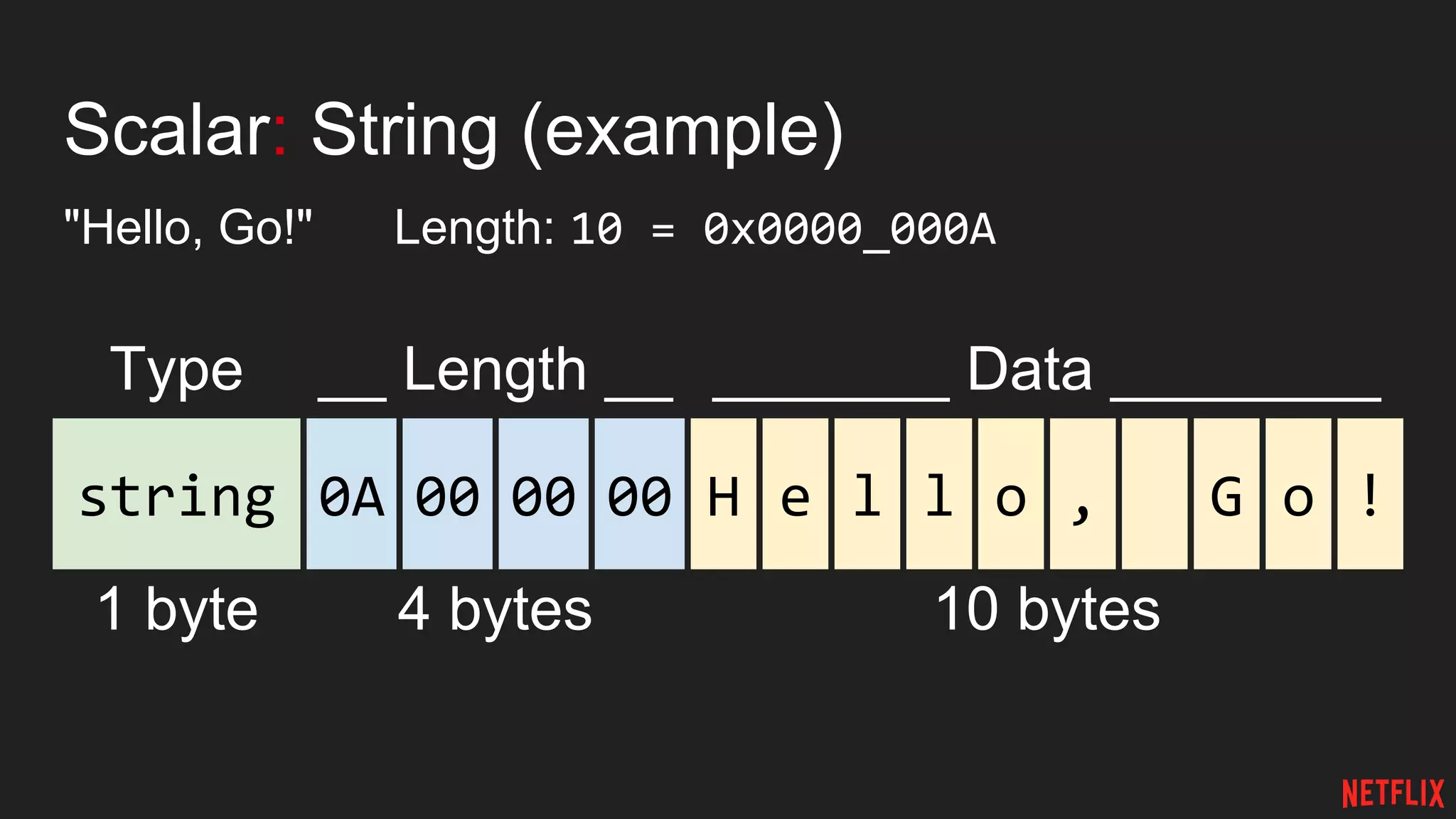
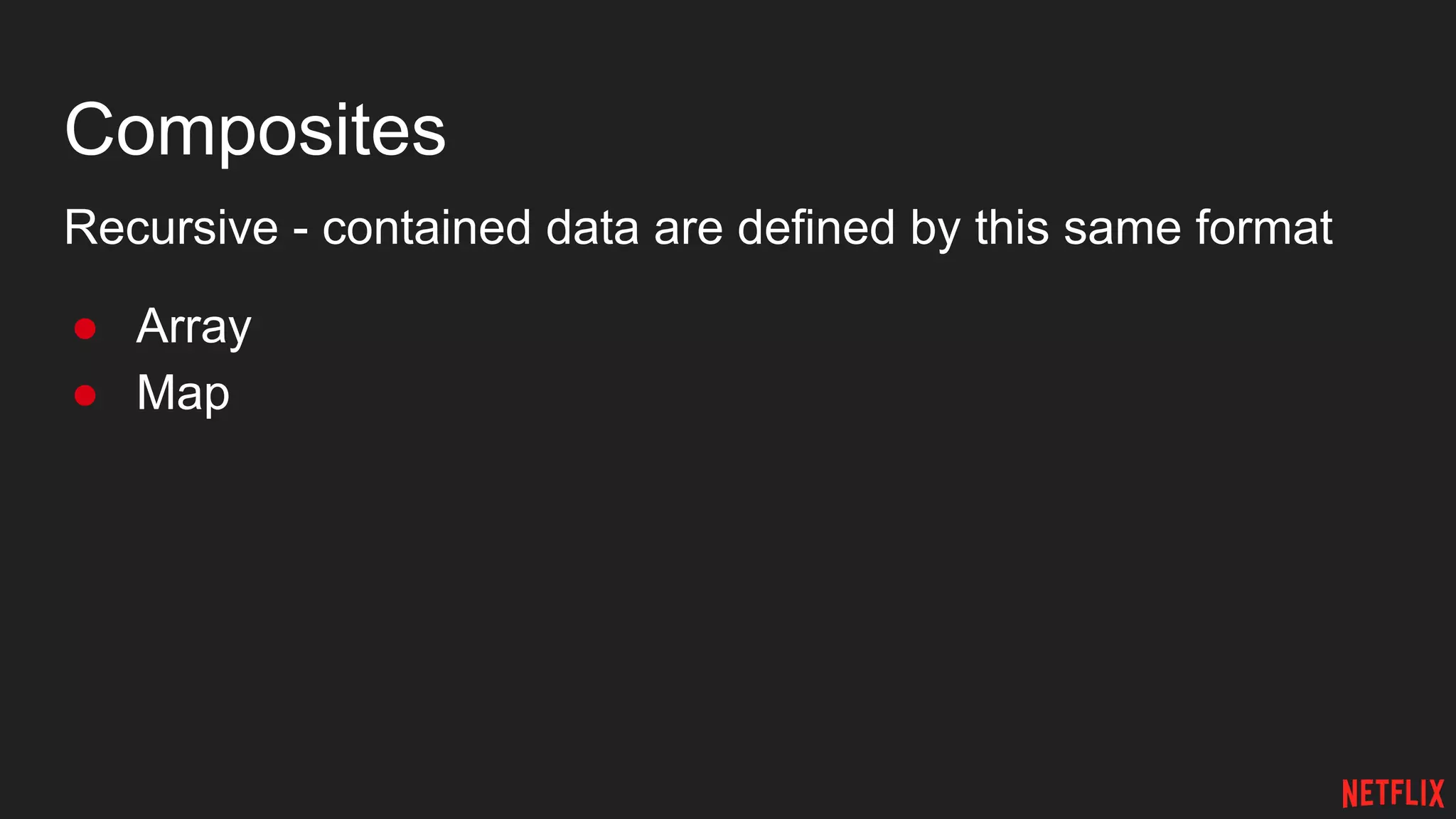
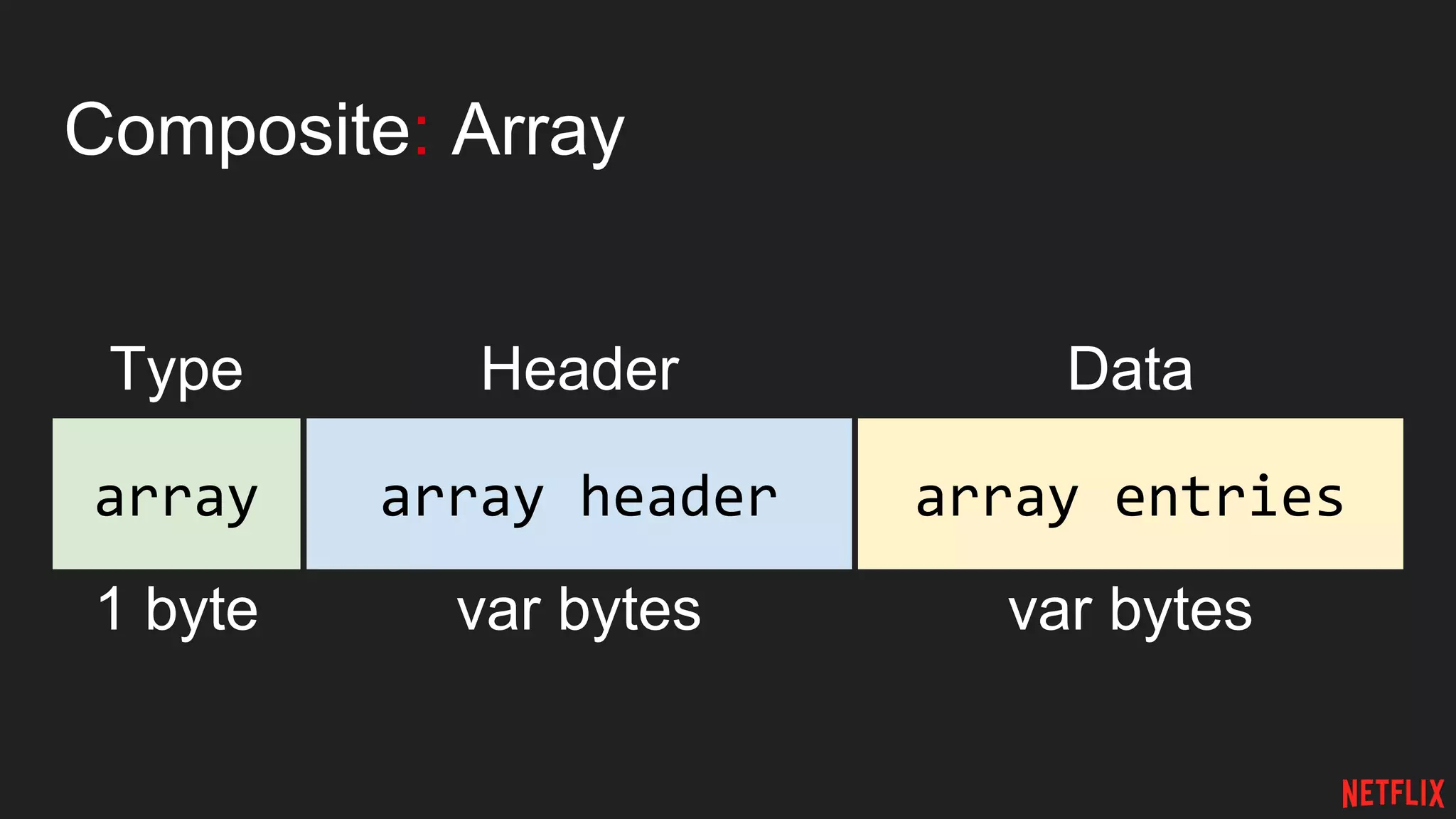
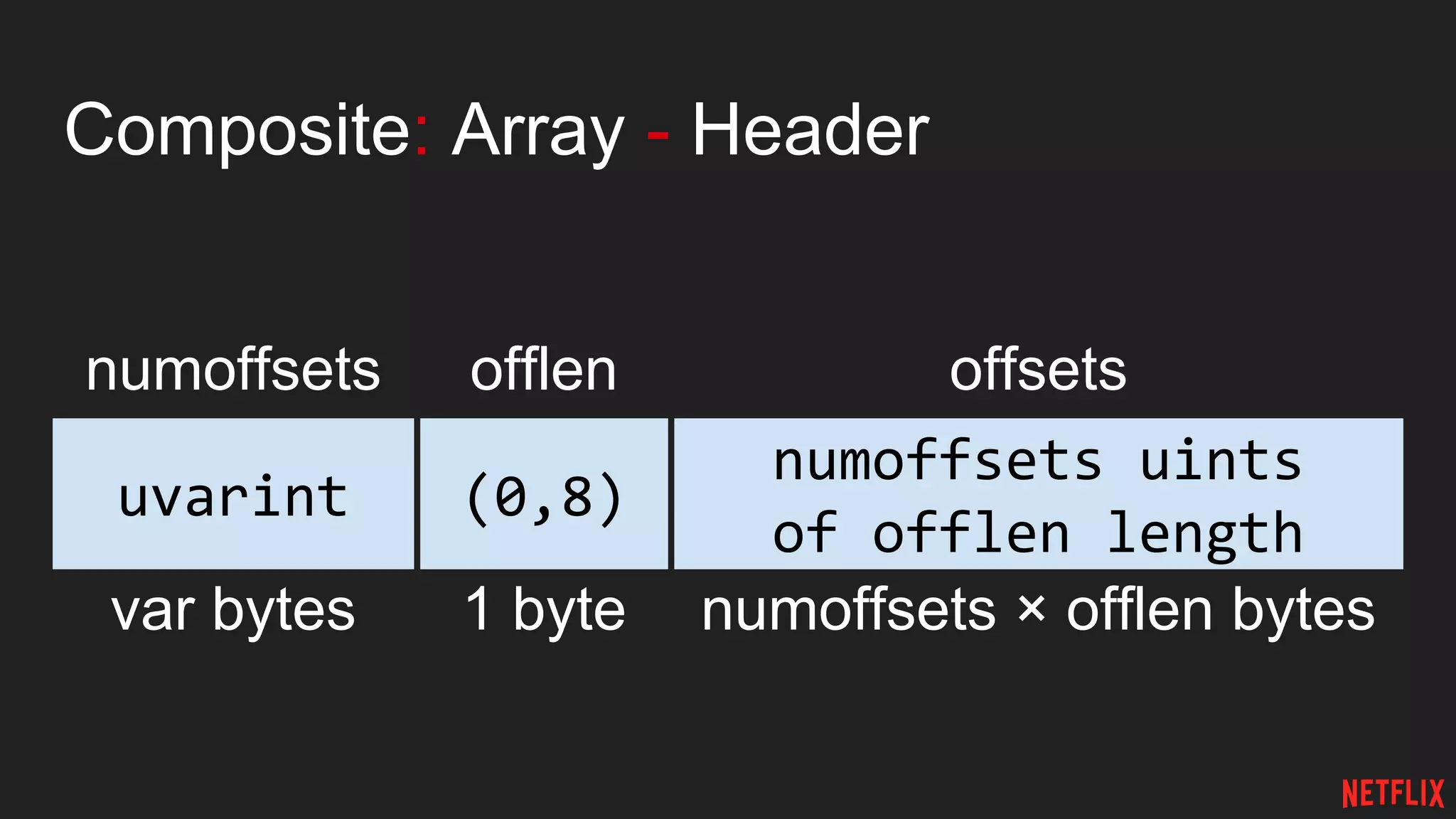
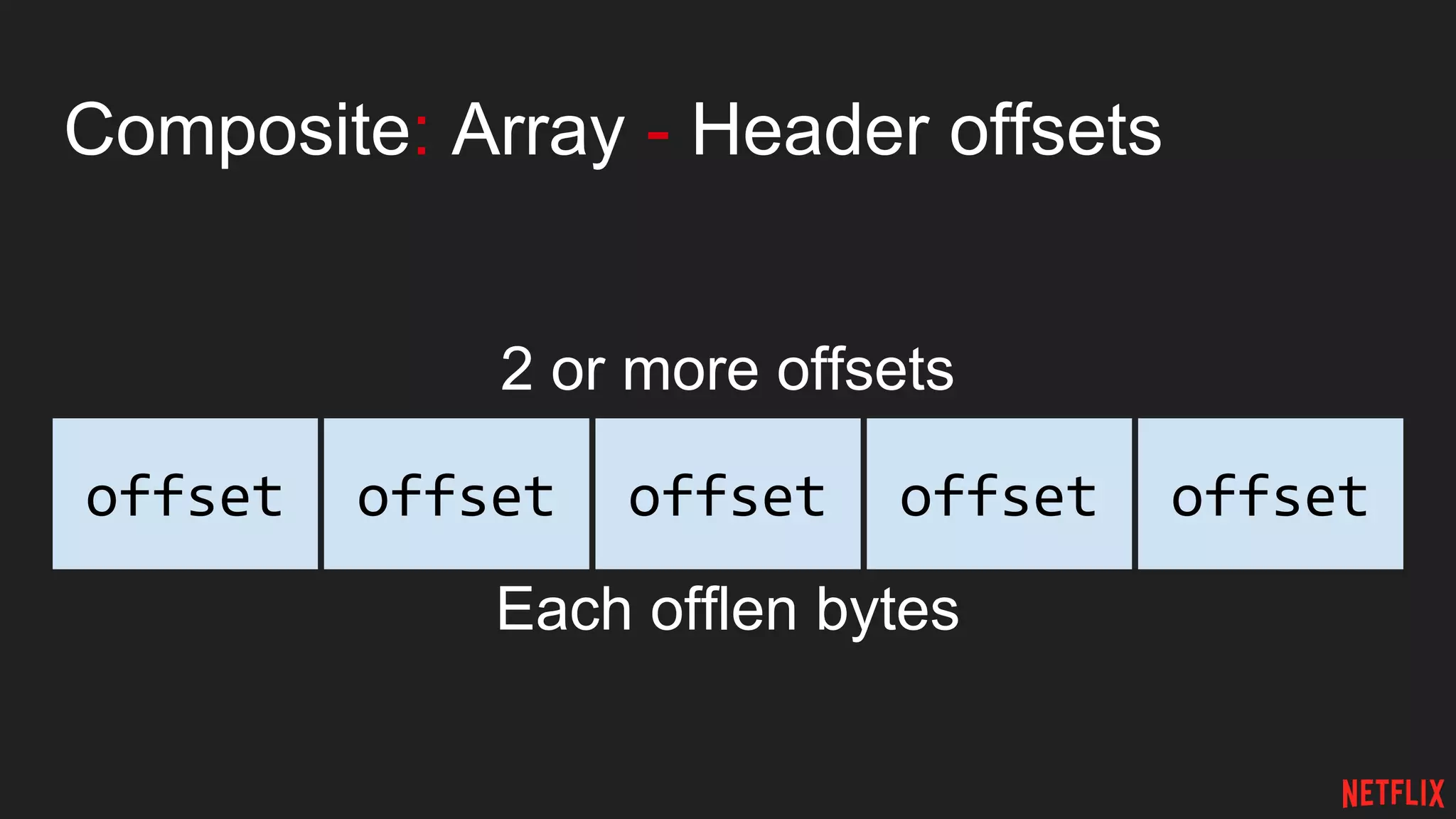
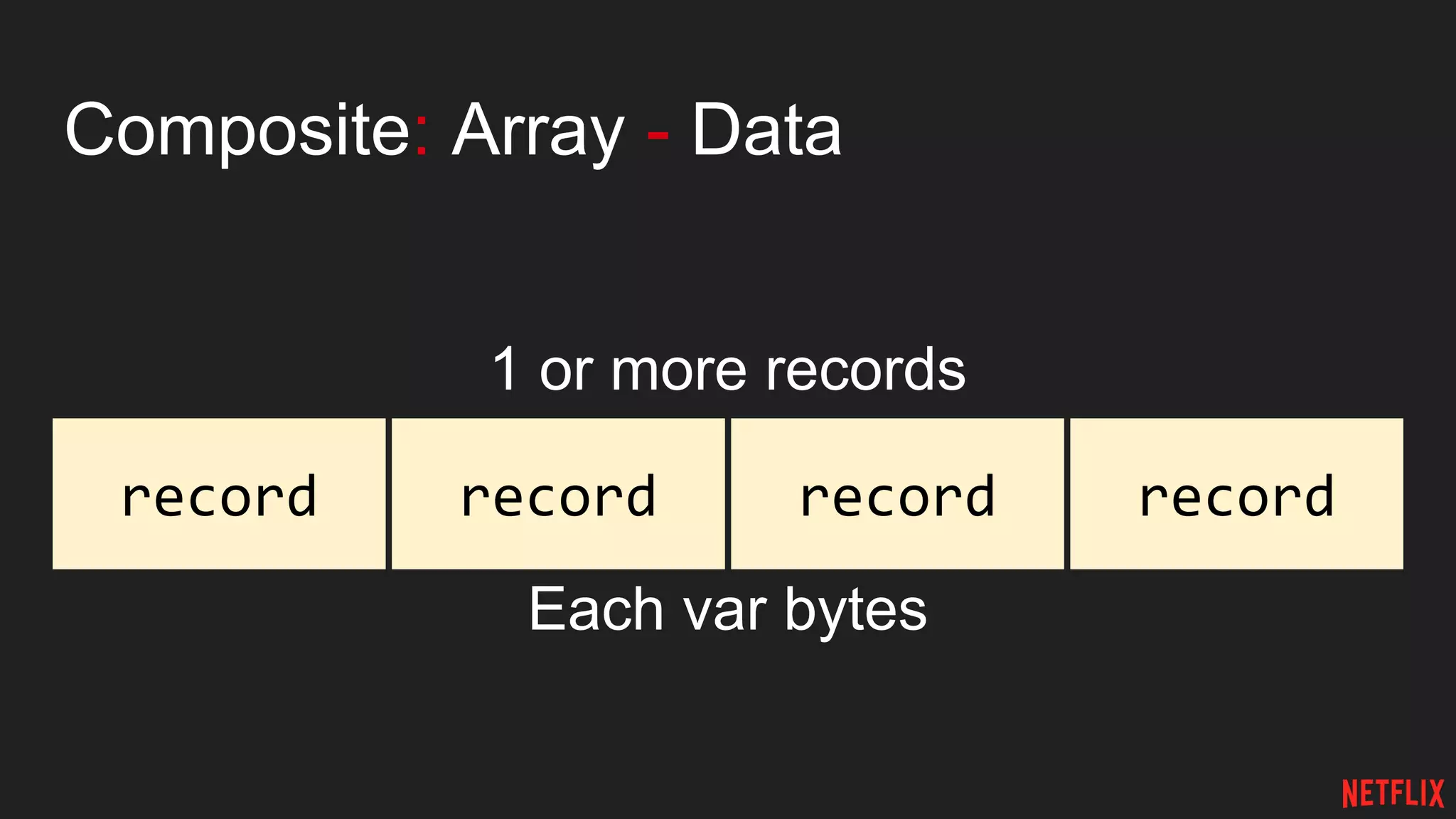
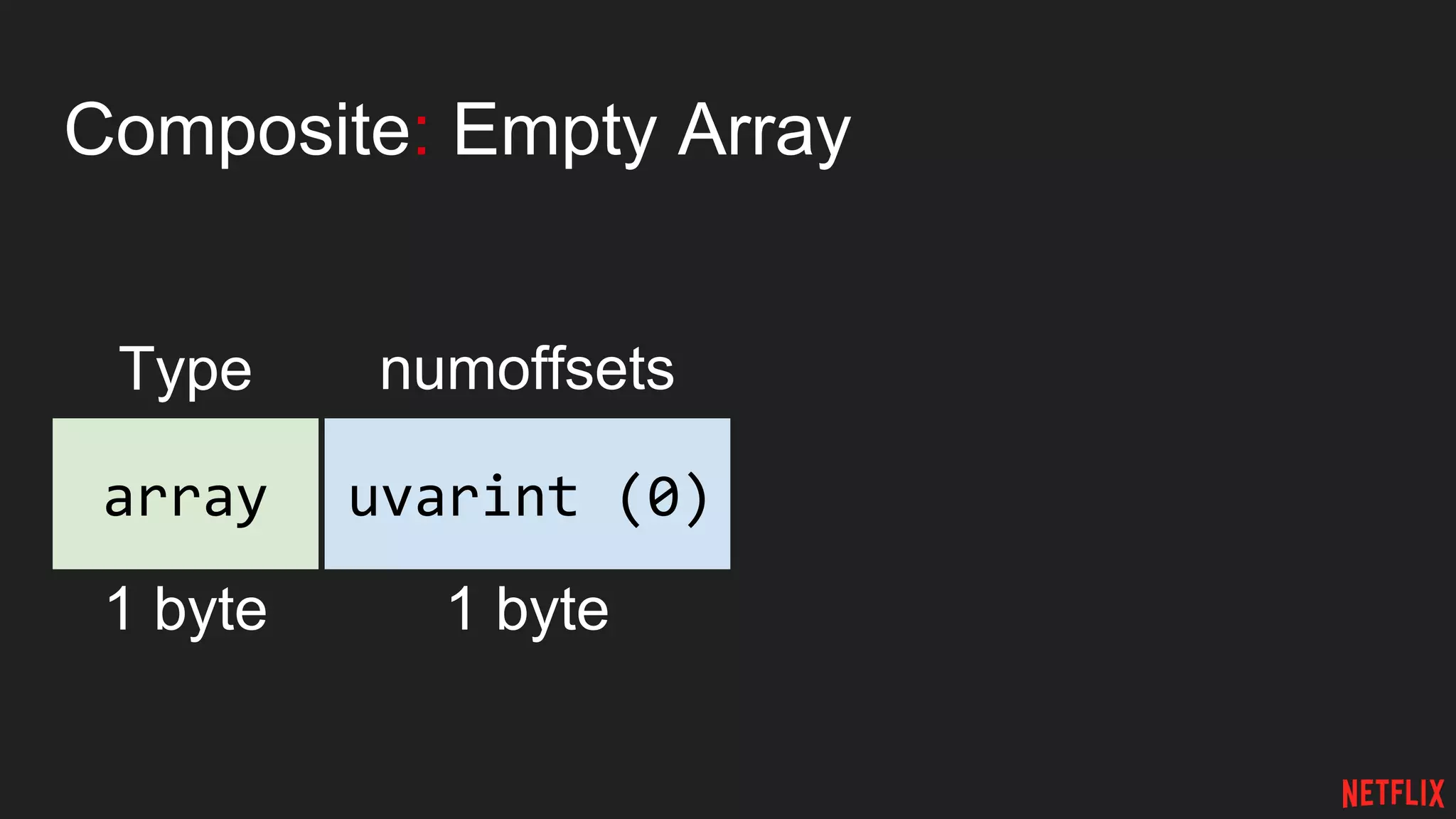
![Composite: Array (example)
[true, false]
array
Type ___ Header ____
1 byte ‾‾‾‾‾‾ 5 bytes ‾‾‾‾‾‾
______ Data _______
‾‾‾‾‾‾‾‾‾ 4 bytes ‾‾‾‾‾‾‾‾‾
0 2 4 bool 1 bool 013
num
off
off
len
____ offsets ____ ___ record 2 ______ record 1 ___](https://image.slidesharecdn.com/creatingacustomserializationformatgophercon2017-170713194334/75/Creating-a-Custom-Serialization-Format-Gophercon-2017-38-2048.jpg)
![Composite: Array (example, slicing)
[true, false]
array
Type ___ Header ____
1 byte ‾‾‾‾‾‾ 5 bytes ‾‾‾‾‾‾
______ Data _______
‾‾‾‾‾‾‾‾‾ 4 bytes ‾‾‾‾‾‾‾‾‾
0 2 4 bool 1 bool 0123
num
off
off
len
____ offsets ____ ___ record 2 ______ record 1 ___](https://image.slidesharecdn.com/creatingacustomserializationformatgophercon2017-170713194334/75/Creating-a-Custom-Serialization-Format-Gophercon-2017-39-2048.jpg)
